




Shepherd is and always has been interdisciplinary, even transdisciplinary. Our world needs the skills and insights our students learn from every corner of campus—from biology, business, cognitive and behavioral science, economics, English, history, law, philosophy, politics, sociology, and more. And our world also needs the skills and insights our students learn beyond the university walls, from their work with local nonprofits and through summer internships all around the world.
What are these skills and insights? Needless to say, I can’t list them all in a short letter. I can, however, highlight a few that are too often overlooked.

Empathic attention. People matter. Therefore, everything we do in Shepherd begins and ends with people: with what each of us wants and needs for our lives and loved ones. If we care about how people’s lives are actually going, then we will need to pay attention to stories as well as statistics. Whether reading stats or stories, we should never forget the real people beyond the page.
Clarifying concepts. Disagreement abounds. Is there just as much poverty today as there was fifty years ago? Is America a fundamentally racist nation? Is the gender pay gap an inequity? While some disagree over facts—and therefore need good empirical research into what’s going on—others disagree over definitions. What exactly is poverty? What does it mean for a country to be fundamentally racist? What is equity and
what makes something an inequity? Before jumping to the conclusion that we are right and they are wrong, we should define, or at least discuss, our terms.
Ethical reasoning. Thoughtful people can and often do disagree. Even those dedicated to dignity can disagree: over an action’s effects or a term’s meaning, but also over what dignity demands. After all, even those dedicated to the fundamental equality of every person need to recognize that no one can promote everyone’s every interest at every moment. What, then, should we do? Maximize total well-being, even if a small minority suffers? Or minimize the burden on the worst-off, even if a majority is unhappy? These questions aren’t easy to answer, in theory or practice. And smart, good people can disagree. Whatever else we do, though, we should wrestle with these questions, in conversation with others, including others with whom we disagree. As John Stuart Mill reminds us, those who know only their own side of the case know little of that.
Again, our world needs these skills and insights—among others. Even more so, our world needs you. Whatever your major, background, career path, or political perspective, if you have a passion for a fulfilling life and a more just world—a world with real opportunity for all—come join us in Shepherd!
Pickett Director of the Shepherd Program Associate Professor of Ethics and Poverty Studies
We strive to understand and address poverty and inequality in ways that respect the dignity of every person.
— Howard
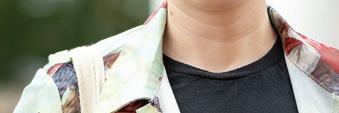
A Shepherd education is rooted in the rich, innovative teaching of W&L faculty affiliated with the program. Students are encouraged to understand the complex nature of poverty from a host of disciplinary angles. The firsthand accounts below provide a window into that learning from the student perspective. n
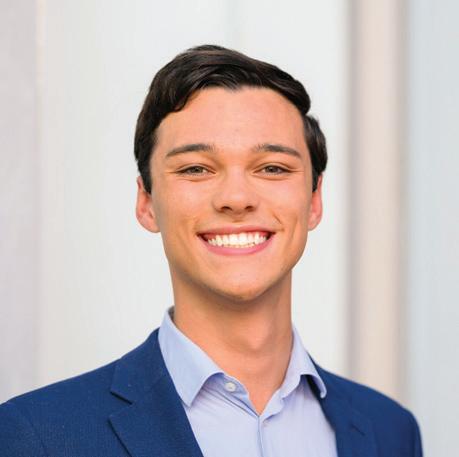

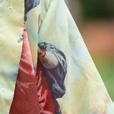 By Evan Clark ’26
By Evan Clark ’26
After taking one class with Professor Romina Green, I knew I had to take another, so I ended up in HIST 235. This class was completely unique to any other history class because we read about how history has been silenced and how our collective memory is facilitated by the state, objects, museums, art, music and trauma sites. As a result, I have grown a newfound attention to how dominating ideologies dictate whose story is remembered and whose are missing in history. We looked specifically at how the working class, indigenous people and those targeted by dictatorships fought the institutional histories from below. As a class, we were able to go on a field trip to the West Virginia Mine Wars Museum and sew arpilleras, which are a traditional woven and colorful patchwork in Chile during the dictatorship. The additional focus on song lyrics and images further taught me the many ways that memory appears in our daily life outside the classroom.
The intersection of human rights and collective identities revealed to me that many of those living in poverty are fighting their own memory battles. Being able to explore the process of retaining and reproducing memories in Latin America gave me the tools to analyze memory in my life and the Rockbridge Area. HIST 235 has molded the Shepherd Experience into one that is attentive to the voices that we might be missing in our collective narrative and understanding practical initiatives to combat the erasure of memory to restore dignity to those of the past, present and future. n
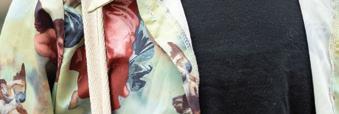
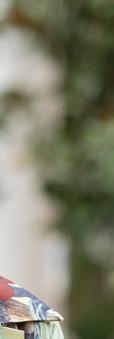

This winter I had the opportunity to take ENGL 294C, “Caribbean Women Responding to Racism” with Prof. Chowdhury. I had never taken an English course at W&L, and so I was excited that my introduction to the department could be through a course that aligned with my concern for issues of racial and gender equity. Throughout the course, I was introduced to a side of literature I had never explored before. Far from the European classics like Shakespeare, these tales from Caribbean women were full of romance and drama, but also told powerful and harrowing stories of the impact of colonialism and societal oppression. From Jean Rhy’s “Wide Sargasso Sea” (a Jamaican retelling of Jane Eyre) to Jamaica Kincaid’s “The Autobiography of My Mother”, I was exposed to the experiences of African, Indian, and Indigenous-descended women in the Caribbean. We had wonderful class discussions about gendering and racialization of emotion, the role of sex in empowerment and the economic stratifications within marginalized groups. As much as it was a literature course, it also allowed me to explore my passions in sociology and poverty as we recognized complex social structures at work in the novels. This course sparked an interest in the Caribbean diaspora and gave me the ability to have more knowledgable, nuanced discussions in future courses. This was an English class, but it was also a deep analysis of often overlooked areas of inequality and oppression. n
I took POV 262 with Professor Pickett because I wanted to take more classes within the Shepherd program. After taking POV 101 with Professor Pickett, I learned so much about issues I had never even thought about surrounding affordable housing, mass incarceration and social determinants of health.
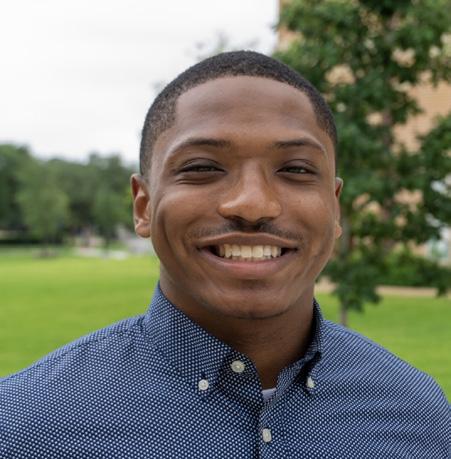
I knew that this course with Pickett would help me critically think deeper about social issues revolving around equity and empathy. We spent the semester first discussing equality, equity, and inequities and then moved on to social structures and justice and concluded the course with discussions about empathy. My favorite part about this class was spending the whole semester applying what we learned in group discussions to a particular inequity we felt passionate about changing. My group dove into inequities surrounding equitable education, particularly if gifted programs are equitable. Gifted programs are a highly contested topic in the realm of education. It was interesting to evaluate the ethics behind different policy recommendations to improve how we view gifted education in the world.
At W&L, I am an accounting major with minors in data science and philosophy, however this class has been one of my favorite classes here and one that I find applicable to my future career. Post-graduation I plan to pursue a career in management consulting. This class has helped me appreciate the ethics and moral reasoning behind policy decisions. I hope to encourage management to think about the ethical implications of their decisions as I advise businesses in the future! n
I decided to take SOAN 290C, “Producing Culture from the Margins,” with Professor Sutton due to my love and appreciation for the Arts. I entered the class yearning for the knowledge of how culture perpetuates social inequities like racism, sexism, ableism and other various intersections of marginality.
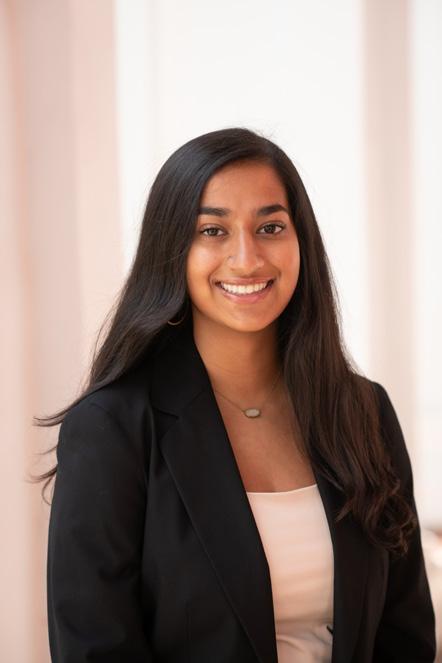
In this course, we were tasked with examining the creation and evaluation of cultural objects including music, visual art, literature, film and television in a Western historical context. As we examined these cultural objects as a class and through our own personal studies, we learned how culture was built through the analysis of historical constructions of the “culture industry” in Western civilization by critically reading the literature of many scholars throughout history. Some of these works included W.E.B Dubois’s “Criteria of Negro Art”, excerpts from Pierre Bourdieu’s “Distinction,” and Horkheimer and Adorno’s “The Culture Industry”. These readings helped us gain an understanding of how cultural objects influence the politics of social identity, expression and our own personal lived experiences. The class culminated with a final paper where I critically analyzed Ryan Coogler’s powerful film “Fruitvale Station” and how it was used as a match to ignite the Black Lives Matter movement shortly after its release.
In conclusion, this course opened my eyes to problems I never knew truly existed in the world and showed me that no matter how small we think our influence might be, we all can make an impact to fight against the unjust inequities in our society just like the contemporary scholars and artists we were taught about in this course. With this knowledge, I am now inspired to continue my efforts in the fight against poverty and inequity in my future career. n
AFCA 295B The Art and Politics of Dirty South Rap Music Hill
ARTH 276 Chicano/a Art and Muralism
BIOL 275 Food for Thought
BUS 381 Social Entrepreneurship
CBL 100 Intro to Community-Based Learning
CBL 200 Peer Mentor Training for CBL
ECON 235 Economics of Social Issues
ECON 2535 Women in the Economy
ECON 241 Economics of War and Peace
ECON 250 Public Finance and Public Policy
ECON 280 Development Economics
ECON 286 Lakota Land Culture, Economics and History
ECON 344 Advanced U.S. Economic History
EDUC 200 Foundation of Education
EDUC 235 Educating for Global Citizenship
ENGL 266 Introduction to African American Literature
ENGL 294C Caribbean Women Responding to Racism
ENGL 376 Postcolonial Literature and Theory
ENV 203 Environmental Humanities
ENV 230 Food and the Environment
FILM 253 Field Documentary on Human Rights in Ghana
HIST 235 Historical Memory in Latin America
HIST 259 The History of the African-American People to 1877
HIST 269G Borderlands, Empires, and Encounters
HIST 275 African Women in Comparative Perspective
JOUR 295E The Framing of Race in Mass Communications
LIT 295I The African Child Soldier
LJS 295Q Topics in Law and Legal Studies; Family Law
MESA 295
Seeds of Social Change
MESA 295B Social Justice Arabic Lit, Films, & Thought
PHIL 253 Philosophy of Race
PHIL262/POV 262
Poverty, Equity, and Empathy
PHIL 296D Philosophy of Capitalism
PHIL 296E Philosophy of Immigration
PHIL 346 Medical Ethics Lamb
POL 232 Public Policy
POL 247
Latin American Politics Ponce de Leon
POL 250 Race and Equality
POL 292A Police on Film Lester
POL 294A Food Policy Harris
POL 296C International Political Economy Lee
POL 342 Seminar: Law the Judicial Process Harris
POL 380D Seminar: Immigration Attitudes Ponce de Leon
POV 101 Poverty: An Interdisciplinary Introduction



POV 102 Field Work in Poverty Studies
Diette and Pickett
Charley and Pickett
POV 192 Blue Ridge Mile Advocate Training Elrod
POV 193 Blue Ridge Mile Clinic Elrod
POV 197 Bonner Program Charley and Elrod
POV 202 Respect, Community & Civic Life Charley
POV 280 Poverty Law Shaughnessy
POV 295 Child Abuse and Neglect Hammond
POV 296A Justice, Hope & Change Pickett
POV 423 Poverty: A Research Seminar Goldsmith and Pickett
POV 491 Senior Seminar: Uncertainty Eastwood and Pickett
REL 211 Religion and Violence Filler
REL 222 Law and Religion Lubin
SOAN 180C FS: Sociology of Race and Ethnicity Chin
SOAN 222 Data Science Tools for Social Policy Eastwood
SOAN 263 Poverty and Marginality in the Americas Perez
SOAN 265 Exploring Social Networks Eastwood
SOAN 266 Neighborhoods and Inequality Eastwood
SOAN 276 Art and Science of Survey Research Jasiewicz
SOAN 279 Conceptions of Race and Health: Black & White = Gray Chin

SOAN 290B Introduction to Criminology Cataldi
SOAN 290C Producing Culture from the Margins Sutton
SOAN 290D Special Topics in Sociology: What is Power? Perez
SOAN 290E (de)Constructing Disability in the US Sutton

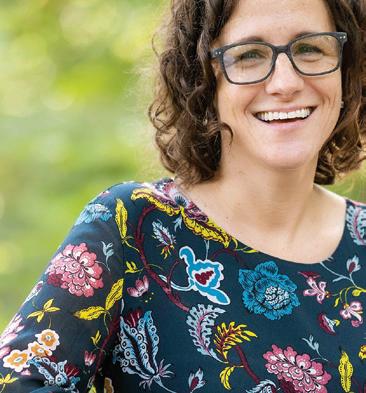
SOAN 290F Social Inequality in American Cinema Sutton
SOAN 291E Special Topics: Archaeology of Inequity McCarty
My involvement with the Shepherd Program is one of my favorite parts of my job. I love learning alongside Shepherd students in my classes. Their curiosity, passion and knowledge (particularly that they bring in from other Shepherd courses) enrich our conversations, making the class better and more enjoyable for all.
Caitlin Barnes ’23
Tricky Female Friendships: An Exploration of Judgement’s Role in Sula’s Representation of Female Friendships
Sarah Beaube ’23
Overdoses in Poor and Rural Communities: The Reality of the Opioid Epidemic in the United States
Emily Brookfield ’23*
The Hierarchical Perception and Denigration of Animals in Early Modern English Drama
Christina Cavallo ’23*
Making Movement Meaningful: A Case for Energy-Creating Exercise Equipment
Finn Connor ’23*
Project Horizon: Manual for Working Effectively with LGBTQ+ Clients
Emma Conover ’24
Decolonize the Soil: Case Studies in the Restoration of Traditional Ecological Knowledge
Tyrese del Casal ’23*
The Moral Community of Indigent Defense: Chief Public Defender Appointment Process and Standards of Representation
Kate Dewing ’23
Poverty Porn: How Media Depictions of Poverty Threaten Human Dignity
Gabby Emge ’23
Decarceration: A Promising Approach to Closing the Educational Attainment Gap
Jillian Gallardo ’23
Wonderings of a Fake-ipino: Essays on Food, Identity, my Parents, my Parents’ Parents, and so on
Kamryn Godsey ’23*
Why the Prince Switched Places with the Pauper: An Evaluation of Proximity to Poverty as a Social Status
Brianna Hatch ’23
Ambiguous at best, discriminatory at worst: College involuntary leave policies strip disabled students of agency and opportunity
Alexxis Hatfield ’23*
Rockbridge Area Prevention Services: Emotional Literacy for Pre-School Students
Katherine Ho ’23*
It’s All About Balance: Examining the Factors that Drive a Firm’s Integrated Social Performance
Maggie Johnston ’23
Analysis of Women’s Reproductive Health Care and Prenatal Care in Rural Virginia
Katie Klingler ’23
Gentrification in the Inner City: Theory, Implications, and Washington D.C
Kit Lombard ’23*
“My Motherland”: Efforts and Obstacles of Russian Adoptees Reestablishing Ties to Their Birthplace
Elisabeth Matthews ’23
Sexual and Gender-Based Violence Against Refugee Women: Finding Solutions Based on Women’s Perceptions
Tanajia Moye-Green ’23*
Investigating Group Threat’s Role in the Relationship Between Attitudes Towards Black People and State-Level Punitiveness
Mary-Kathryn Murphy ’23*
Exploring the Impact of Neighborhood Safety and Accessibility on Access to Cultural Capital
Posi Oluwakuyide ’24
Investigating the Roots of Mass Incarceration: A Critical Analysis
Bryson Parker ’23
Racial Inequities in Opioid Use Disorder Treatment
Ellie Penner ’23*
Aesthetics of Independence: Life of Buddha paintings in the Ladakh Budh Vihar
Hannah Puckett ’23*
Woods Creek Montessori: Needs Assessment for Rockbridge County Childcare
Alex Qian ’23*
Post-Apocalyptic Hope: Persistent Change in Octavia Butler’s Parable of the Sower
Blake Sanchez ’23
Revolutionizing SUD Recovery: The Crucial Role of Nutrition in Breaking the Cycle of Poverty and Substance Abuse
Mimi Sherrill ’23*
The Reality of Food in Schools
Jonah Sohn ’23
Vanishing into Society: The Harsh Reality of Living without an ID
Alessandra Stankewich ’23*
Exploring Geographic Dimensions of Poverty and Urbanity of Environmental Health Risk Factors
Jessica Sorensen ’23L
The True Cost of a Ticket
Matthew Todd ’23
Execution Workers: Mental Health Policy Recommendations
Ashley True ’23*
Examining the Effectiveness of Preschool Program Interventions on Long-term
Katie Yurechko ’24
Marginalization through Content
Moderation: An Interdisciplinary Analysis of the Silencing of Marginalized Voices on Social Media
Students in Professor Marisa Charley’s POV102 course helped local elementary school children tell stories this fall through photovoice research.
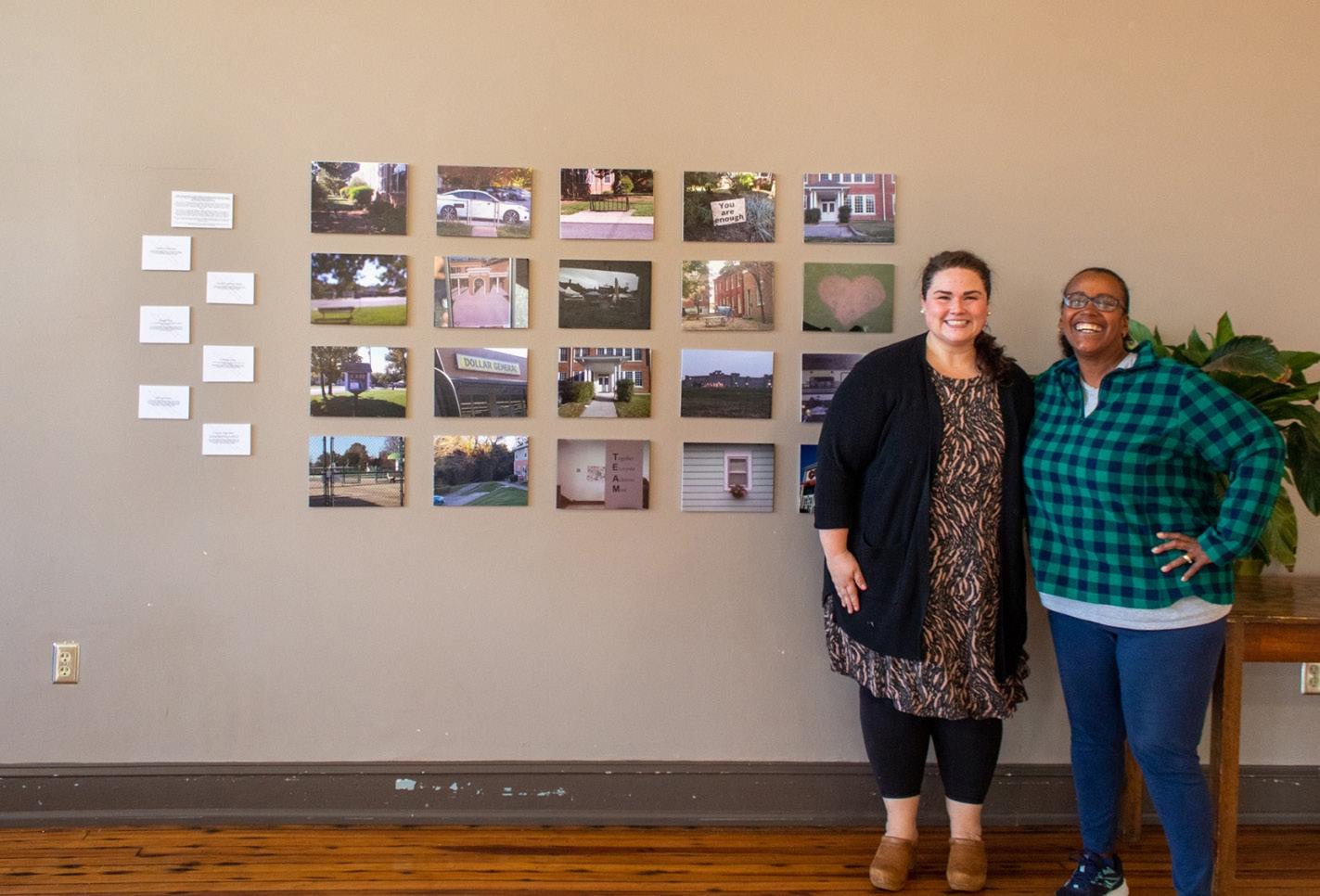
Marisa Charley, an instructor of poverty studies and associate director of the Shepherd Program at Washington and Lee University, coordinated a unique research project in the local community last semester. Charley and a group of undergraduate students from her Fall Term course partnered with the Lexington City Office on Youth (LCOOY) to offer participants in an afterschool program an opportunity to take part in a photovoice project that elicited their responses to the world around them.
Photovoice is a research method that uses photography as a tool for collecting and analyzing qualitative data in the social sciences. It was first developed in the 1990s to give voice to marginalized communities, who are often the subjects of research, but have limited opportunities to express their own perspectives.
For this project, six W&L students enrolled in POV102, an introductory course in the Shepherd Program, to work with eight local elementary school students who were regular participants in LCOOY’s afterschool program. Along with the course instructor, Charley, and the city’s youth program director, Tammy Dunn, the group engaged in an exploration of how the design of public, physical spaces can impact how welcome and included youth community members felt in the public spaces they encounter in their day-to-day lives.
“Tammy Dunn played such an essential role in the success of the project,” Charley said. “Her ability to help us connect in more authentic ways with the kids, and willingness to offer logistical support to help the project feel like a win for everyone involved, was invaluable. She is unceasingly
generous with her time and talents and constantly finds new ways to show so many of us what it is to love others well.”
The POV102 course is often tied directly to a topic relevant to a community partner. Charley rooted the Fall 2022 course partnership with LCOOY in an exploration of respectful and responsible community-engaged work through concepts of physical design. Students were asked to examine the ways special design can promote opportunity for some, but not others, and how civic health can be promoted through the design of outdoor, public spaces.
In photovoice research, participants are given cameras or smartphones and asked to take pictures that reflect their experiences, thoughts and feelings about issues or questions. They then come together to discuss and share their photographs, and researchers use these images as a starting point for further inquiry. The group gathered to share their photos at the Lexington Office on Youth on Nov. 14 and reflect on their time with Charley’s class.
“What resulted was a series of conversations and practices that were thoughtful, eye-opening and sometimes very, very silly,” Charley said. “The images and reflections that were produced as part of this project are the result of the interest and support of many friends and neighbors, and they provided the opportunity to engage in the experiences, stories and senses of an incredible group of youth participants.”
Sion Jang ‘23, a math major and education minor, said that working on the project made her reflect on her aspirations as a future educator.
“The children were so thoughtful and observant in their reflections,” she said. “It was truly inspiring.” n
Volunteer Venture (VV) is a service-learning Leading Edge program for incoming students. Sponsored by the Shepherd Program, VV allows participants to build meaningful relationships and explore issues related to poverty, injustice and opportunity through service with community-based agencies, guest speakers and group discussions related to a thematic issue. Topics for the 2022 experience included food and housing insecurity, law and justice, and the social determinants of health. n
6 Trips | 6 Cities | 26 Peer Leaders | 76 First-Year Participants
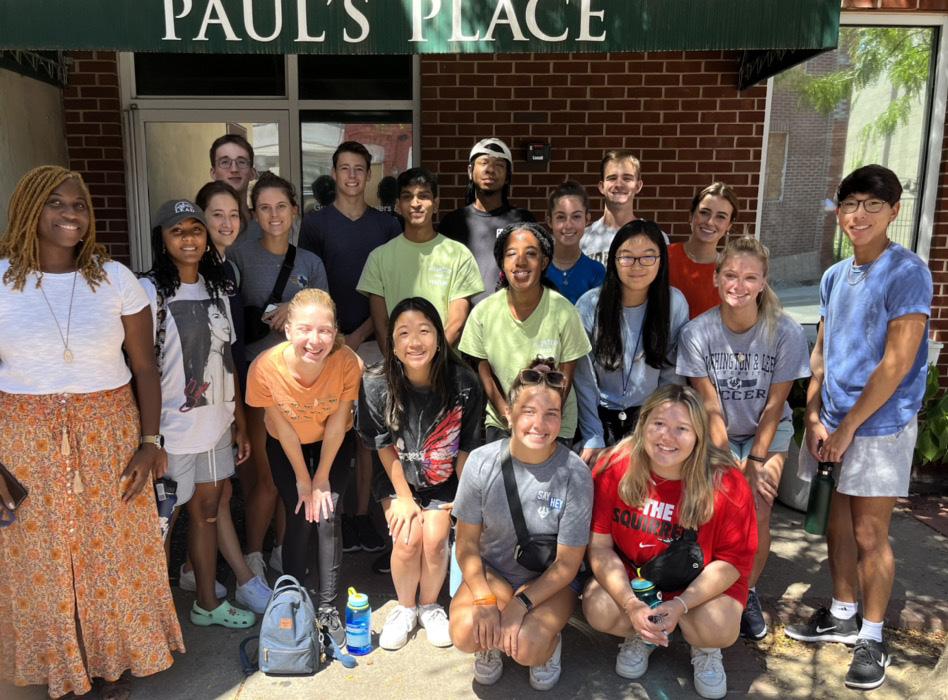
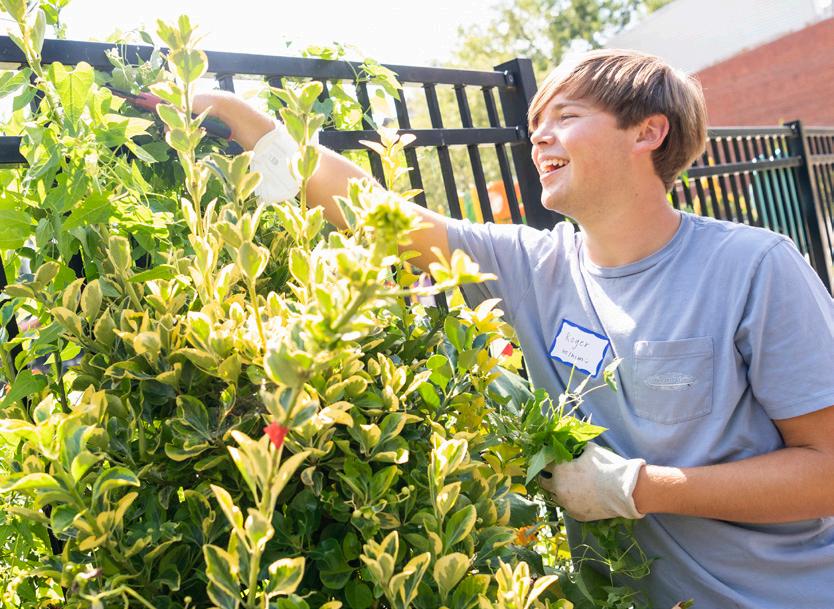
The most valuable aspect of my VV experience was being able to visit local service sites. I was able to learn so much about how they operate and how much of an impact these people make. I also was inspired by how selfless the volunteers are to engage in this field of work.
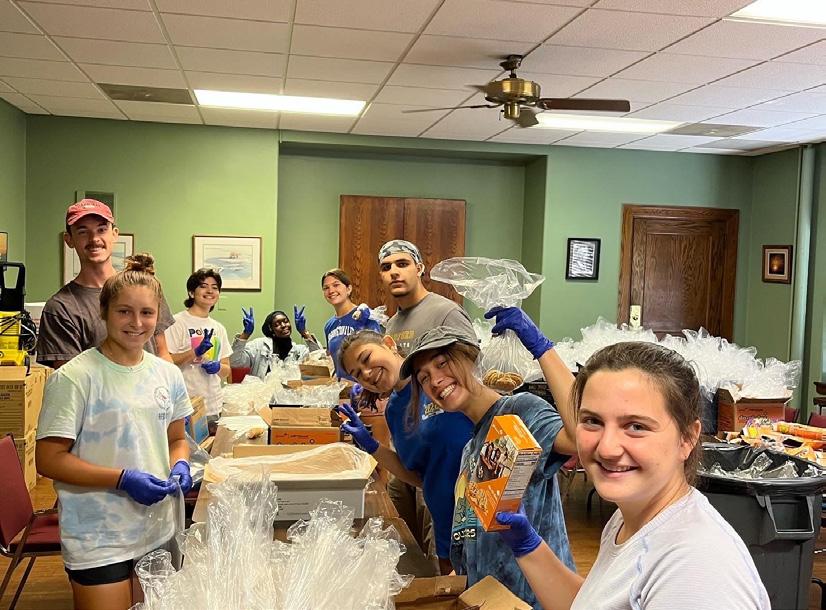
The most valuable aspect of my VV experience was the discussions that our group had following our service projects. Hearing different perspectives about our common experience was very interesting and meaningful. Also, I enjoyed our conversations with alumni who demonstrated how their work at W&L and with the Shepherd Program manifested into careers relating to food and housing insecurity.
I loved my leaders and the perspectives they were able to bring that I otherwise would not have considered. They also did a fantastic job facilitating discussions and making everyone feel that their opinions matter.
W&L’s Bonner Program is an initiative of the Corella and Bertram F. Bonner Foundation and the Shepherd Program. Bonner Scholars are committed to working alongside communities to develop as professional and civic leaders, foster relationships, cultivate community, and work to create increasingly compassionate systems.
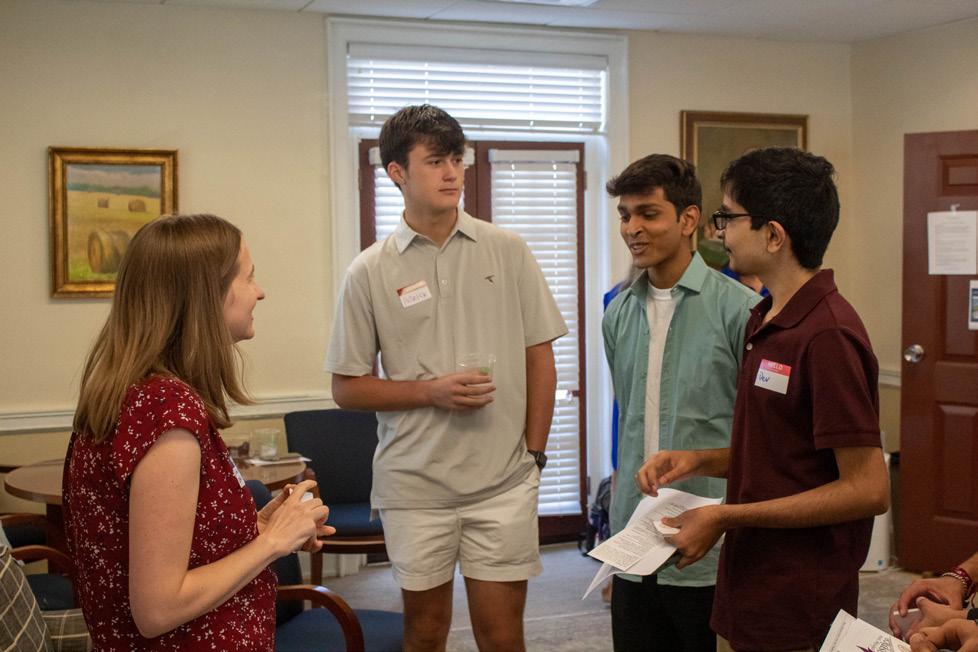
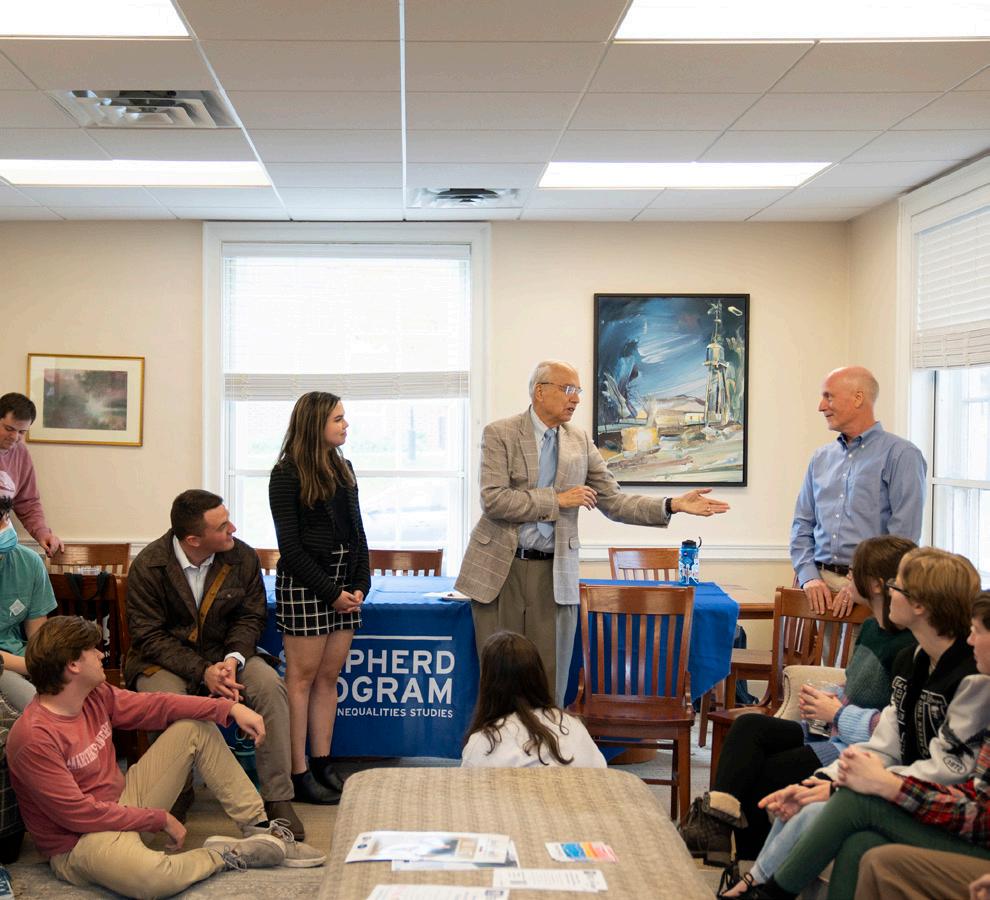
Bonners serve in internship-style community partnerships for 8-10 hours per week throughout their time as a student, and complete at least one summer of service. In addition to the professional development offered by these opportunities, students participate in a credit-bearing academic developmental model that is rooted in the poverty and inequality studies curriculum of The Shepherd Program. Critical and creative reflection, paired with trans-disciplinary approaches to complex social issues, creates a rich landscape for exploring the problems associated with poverty and inequality, and for developing a purposeful civic life. n
We love working with Bonners because they truly become a part of RARA during their time in school. Their passion, new ideas, and eagerness to learn can make a big impact!
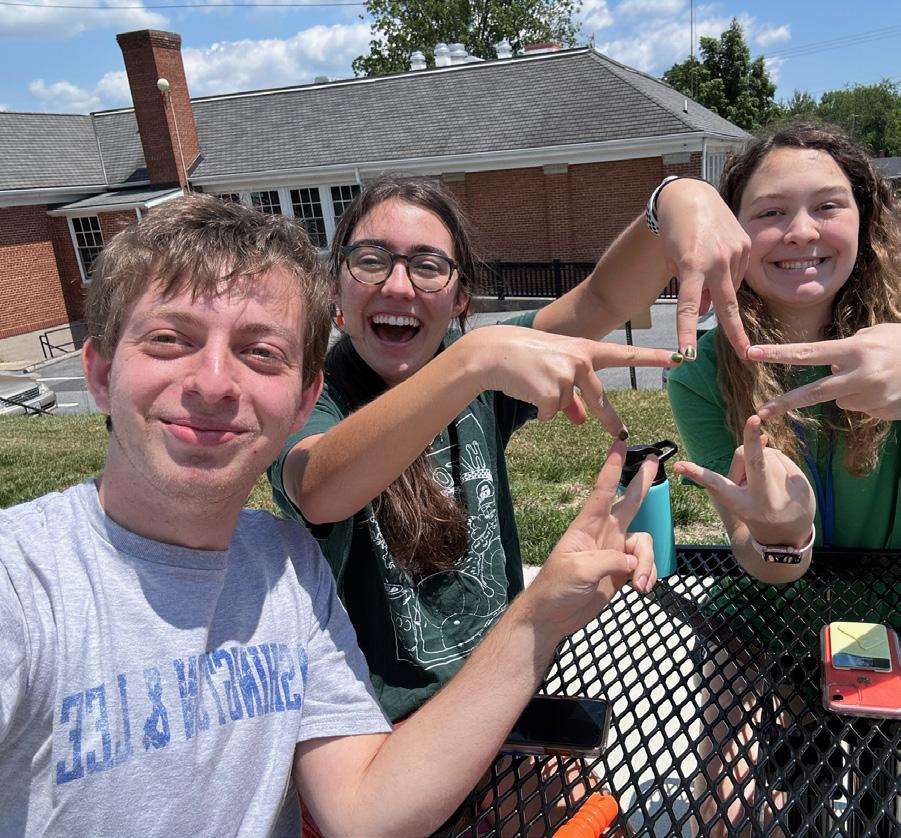 — Lindsey Pérez, Executive Director Rockbridge Area Relief Association
— Lindsey Pérez, Executive Director Rockbridge Area Relief Association
The Bonner experience at W&L has allowed me to develop bonds between my community and peers that have been an integral part of my transition into college. Throughout my first year as a Bonner Scholar, I have been able to explore my interdisciplinary academic and personal passions as I have connected with a variety of community partners. This summer, I served eight weeks as a counselor at the Sensory-Friendly Theatre Arts and Recreation (STAR) camp in Lexington. The most enriching part of my experience with STAR camp was developing meaningful relationships with the children in the program and observing their growth. This experience, made possible because of the Bonner Program, gave me a greater understanding of the importance of making programs for children with neurodivergence accessible to communities. I look forward to continuing my work with my community partners this upcoming year and beyond as I explore my interests.
— Kat RepkaLast October, the Shepherd Program hosted a reception to mark the 20th anniversary of the founding of W&L’s Bonner Program. Bobby Hackett, president of the Corella and Bertram F. Bonner Foundation, and Howard Pickett, director of the Shepherd Program, gave remarks to honor the occasion after an introduction from Bonner Program director Marisa Charley.
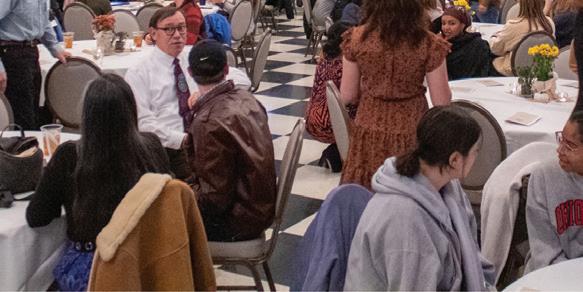

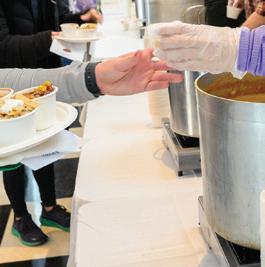
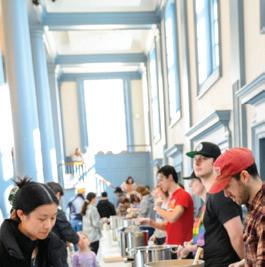
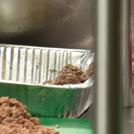
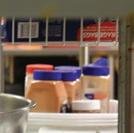


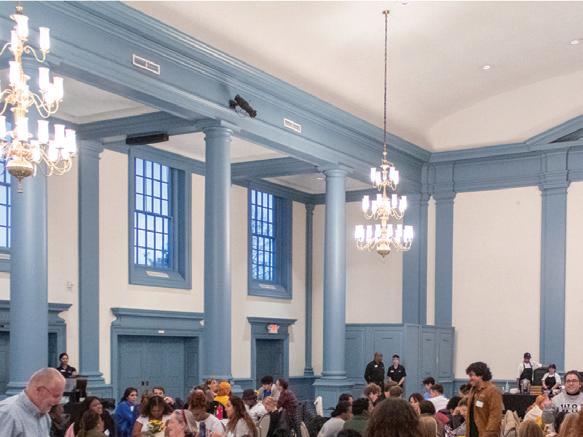
The mission of The Campus Kitchen at Washington and Lee (CKWL) is to strengthen bodies, empower minds, and build communities through food. Student leaders coordinate food preparation and delivery logistics, attend events and discussions, and work with staff to facilitate financial stewardship and development for the organization. n
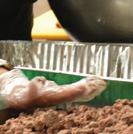
At CKWL, we promote nutrition and address the issues of food waste and food insecurity in Lexington and Rockbridge County. We work towards this by transforming food that would otherwise go to waste into balanced meals for low-income members of the community as well as collaborating with community organizations to provide groceries through our Mobile Food Pantry, Backpack and Produce Delivery Programs.
Meals Delivered: 12,141
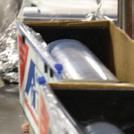
Nutrition Education Instructional Hours: 2,072 hours
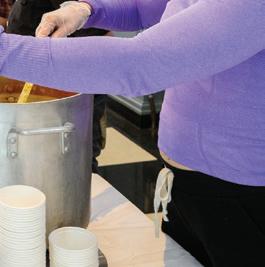
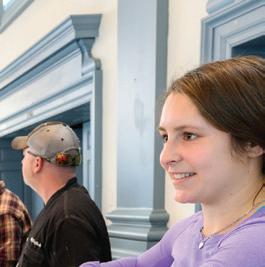

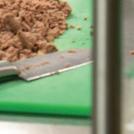

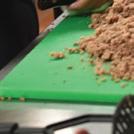
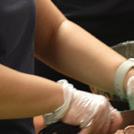
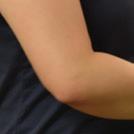
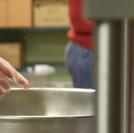
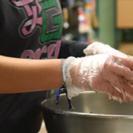
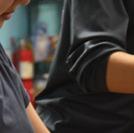



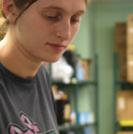
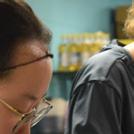
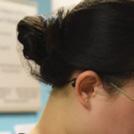
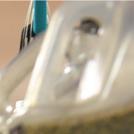
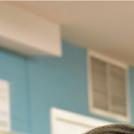
Lbs to MFP and Produce Programs: 36,396

Backpacks: 42,692
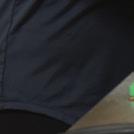

We collaborate with other student organizations at W&L and the wider Rockbridge County in joint events around relevant topics to the food system. During students’ time with CKWL, they develop meaningful relationships with clients that go beyond service. Our students learn to think critically about the variety of ways that they can have a lasting impact within our community by supporting existing organizations and projects.
Volunteer Hours: 3,434
#HungerFighters Cohort Members: 16
Campus Kitchen Leadership Team Members: 52
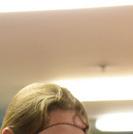
This year, the Campus Kitchen planned and executed an exciting new event series looking at the way that food systems interact with issues of justice. This series, titled Just Food, featured discussions of the interaction between food and the carceral system. The Campus Kitchen develops student understanding of the context in which food insecurity and food waste arise, and this public event series engaged participants beyond the Campus Kitchen Leadership Team. By cultivating an understanding of the broader system in which food insecurity persists, the Campus Kitchen fosters students’ abilities to identify the root of the issues they are passionate about addressing, and encourages them to think beyond the meals they provide to the ways in which we can all work to ensure equitable access to food in the future.
Total Unique Event Attendees: 213
Average Event Attendance: 50 people
The Blue Ridge Mile (BRM) started in 2021 as a partnership between Buena Vista District Court Judge Robin Mayer, President and CEO of Drive to Work Sara Wilson, and the Shepherd Program. BRM expanded its role both inside and outside of the courtroom throughout AY ’22-23 and now operates a student organization, a research and policy group, and an improved service program.
Blue Ridge Mile service operations commenced with 11 advocates in Fall ’22. With a new and improved 1-credit training course, advocates felt more prepared to begin their in-court service work in Winter ’23. Blue Ridge Mile, originally operating in-person in Buena Vista and remotely in Staunton, expanded in-person services to Lexington/ Rockbridge and remote services to Waynesboro. Blue Ridge Mile not only doubled its geographic coverage, but successfully increased client caseload by over 100%. n
The Blue Ridge Mile clinic expanded its partnerships with ESOL, Project Horizon and 50 Ways Rockbridge in service to non-US clients seeking Virginia Driver Privilege Cards. Additionally, the BRM Clinic was recognized by the Omicron Delta Kappa (ODK) James G. Leyburn Award, given to a university or local organization that demonstrates outstanding community service.
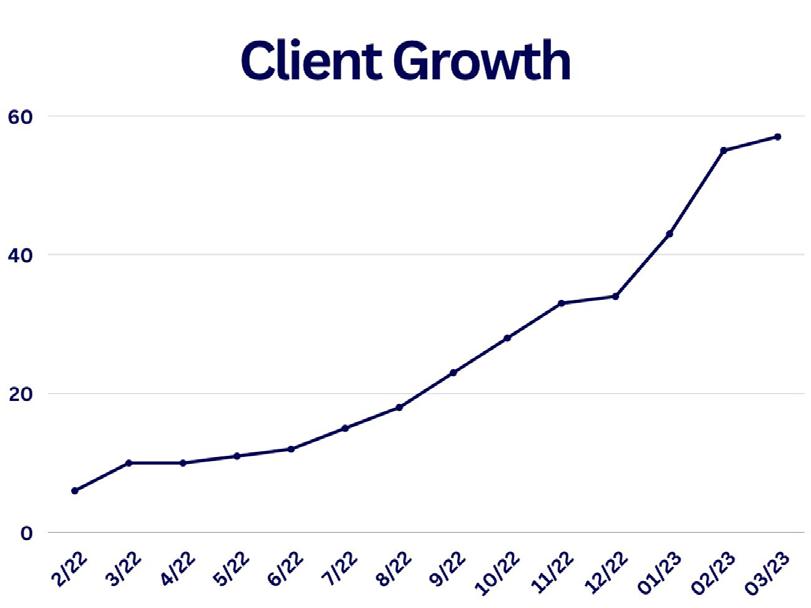
The BRM Policy and Research team also initiated operations this year, meeting with partners across Virginia to develop research projects and strategies. Beginning in Fall ’23, BRM researchers will begin tracking funding for law libraries on behalf of the Lynchburg Legal Archives. BRM will also perform research for Drive to Work (DTW), a non-profit law firm supervising and consulting on BRM operations.
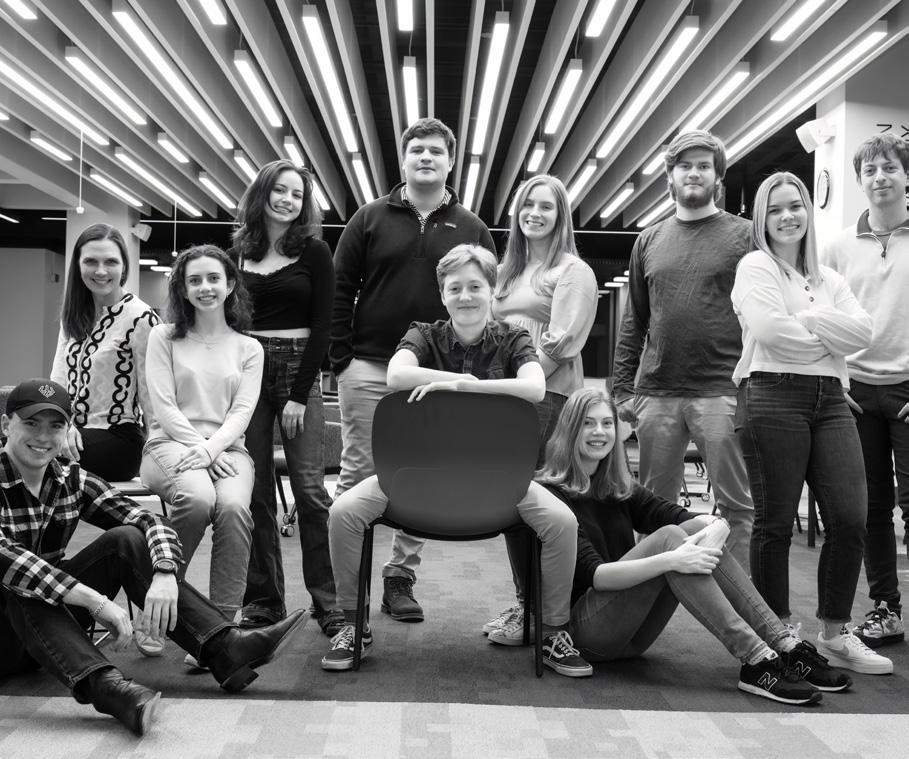
Blue Ridge Mile successfully launched its student organization this year. The group’s events included viewing an unreleased documentary made by the American Civil Liberties Union on the Virginia prison system and meeting with prison reform and re-entry advocate Jesse Crosson. The Blue Ridge Mile student organization serves as the only undergraduate student organization specifically focused on equity in the criminal justice system.
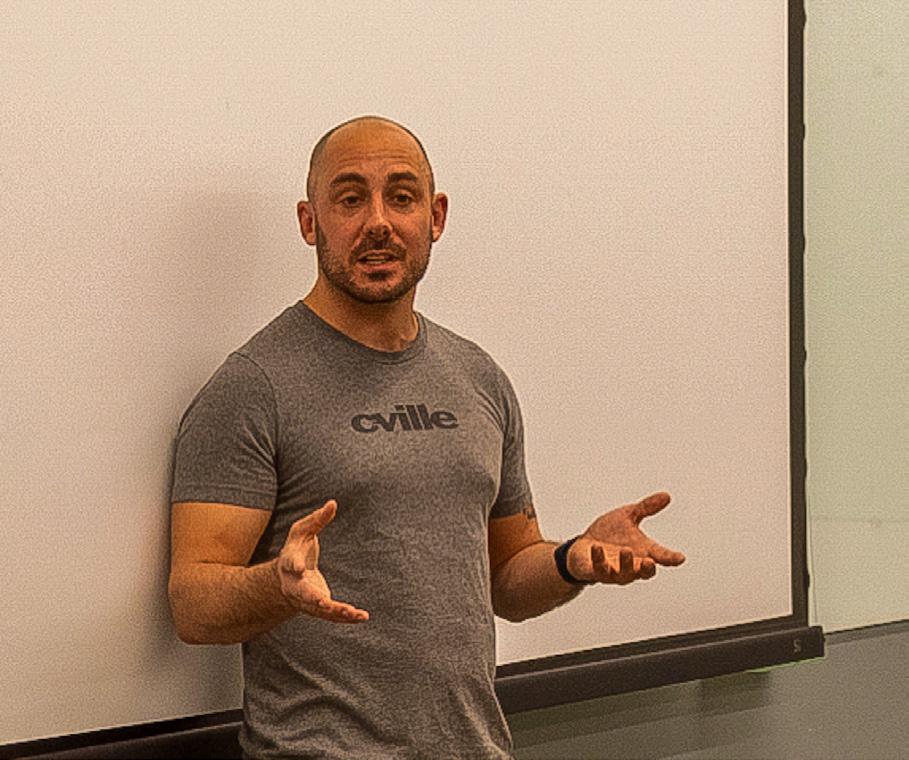
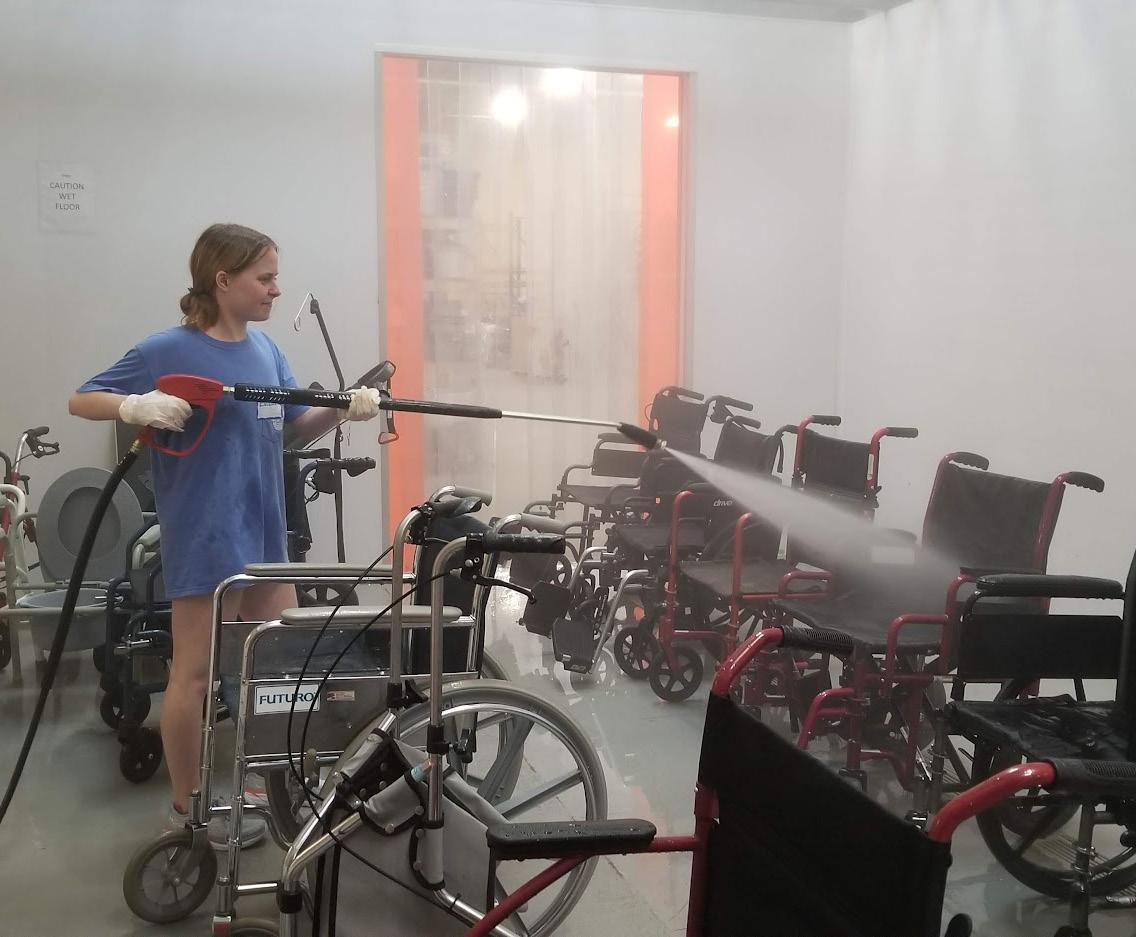
The Nabors Service League, in collaboration with community-based agencies, connects students with opportunities to learn, serve and reflect on issues of poverty and justice. The student leadership team is comprised of four committees: Local Service, Educational Programming, Alternative Breaks and Good Nabors Mentorship. The Good Nabors program provides a first-year cohort of students a structure for community engagement, reflection and learning. n
NSL’s educational series focused on tech equity, featuring Katie Yurechko ‘24, whose academic interests shaped this year’s focus, and Shepherd alumni Anjelica Hendricks ‘15L, Sejal Mistry ‘17, Jamila Seaton ‘09, and Alvin Thomas ‘14. The series was designed to spark enthusiasm within the Washington and Lee community about the power of technology to shape society into a more (in)equitable space.
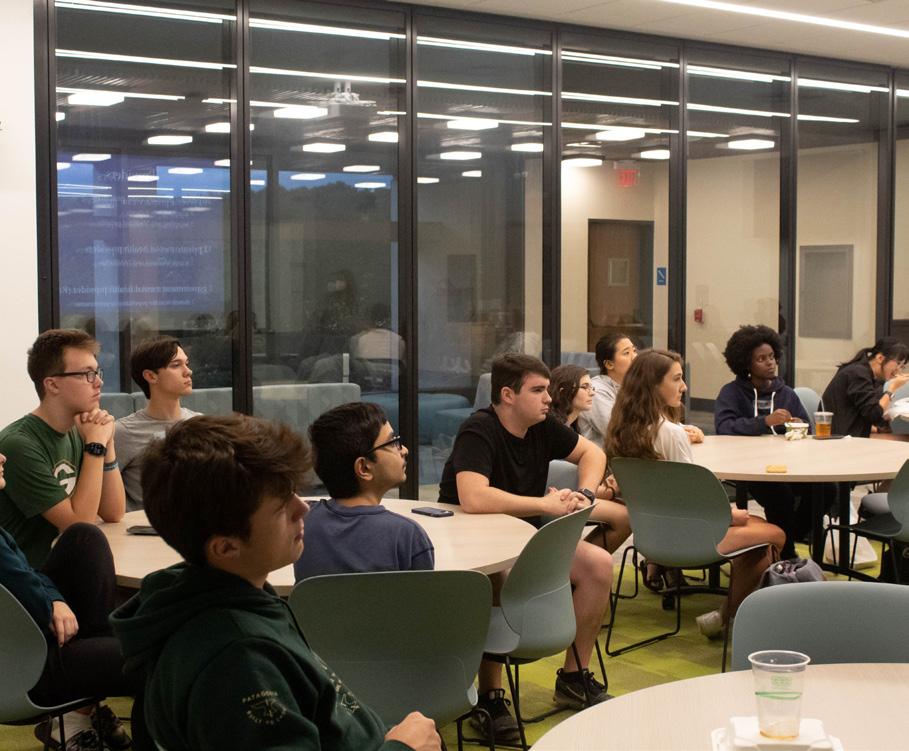
Through the Good Nabors program, NSL offers the opportunity for first-year students to intentionally commit to service in the Rockbridge community and learn and reflect on critical issues related to poverty and inequality with peers and peer mentors.

This year, NSL hosted three Nabors Service Days, connecting W&L students with opportunities at agencies in the greater Rockbridge community. Alternative break trips also returned this year, creating opportunities for students to engage issues of food and housing insecurity in the Rockbridge community over the fall Reading Days and to learn about and work to address issues of public
The Shepherd Program hosts an annual trip to Washington D.C. for students to meet Shepherd alumni and learn from their career experience. The 2023 trip featured visits with Charles Allen ’99, Erin Ferber ’18, Elizabeth Mugo ’19, Shiri Yadlin ’12, Elspeth Suber ’21, Cynthia Cheatham ’07, and Rebecca Beeson Etzel ’10. n
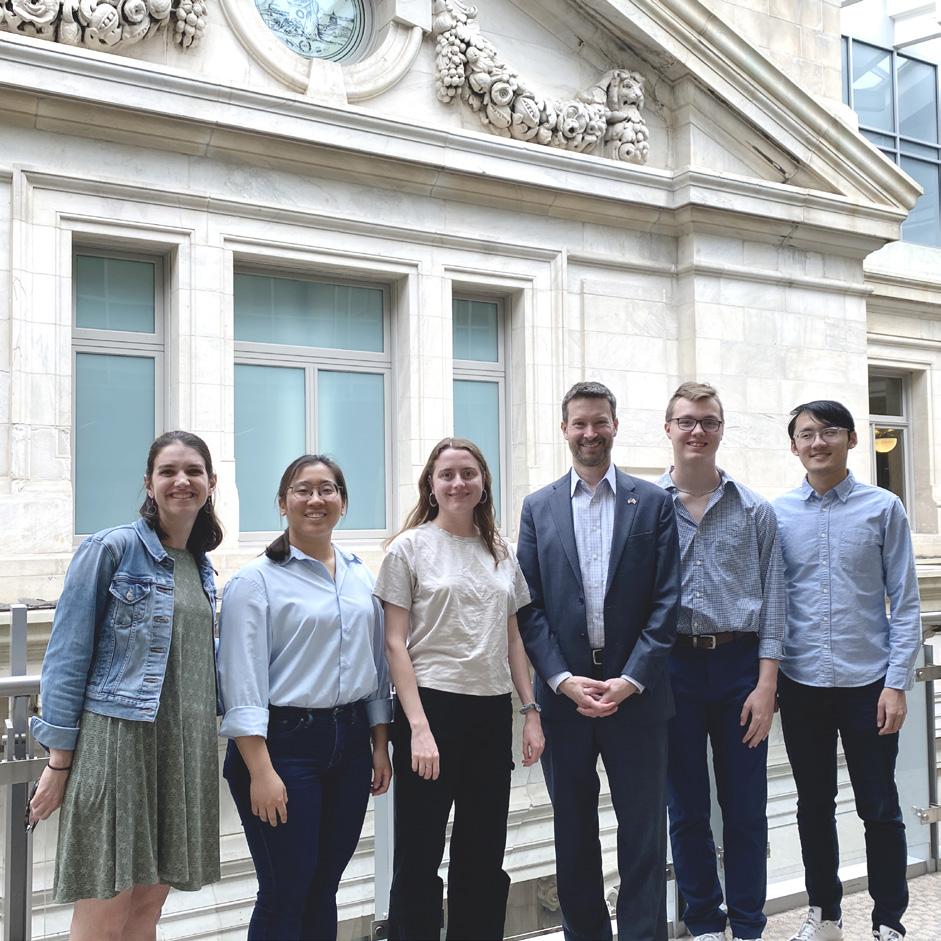
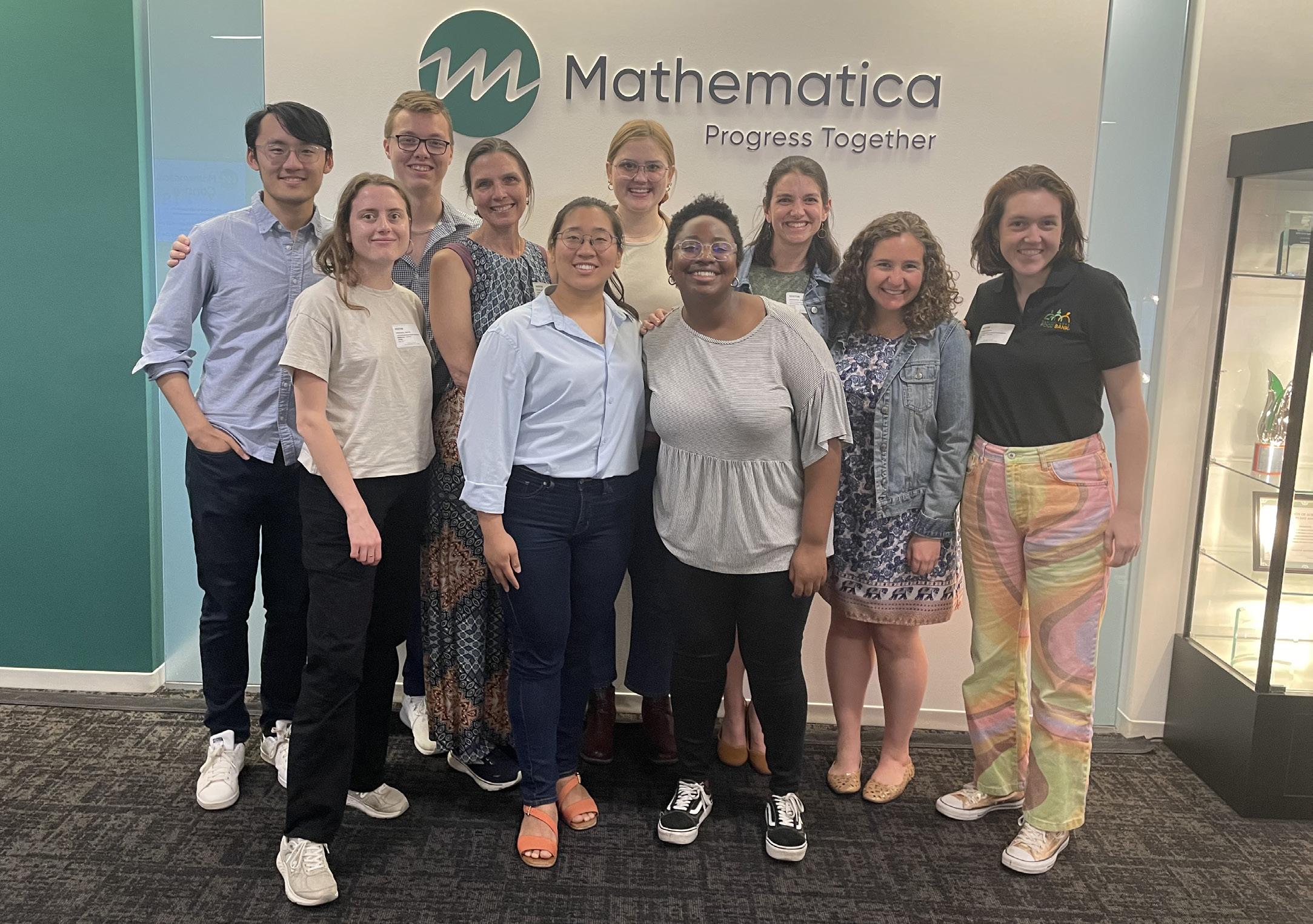
Number of participants: 46
My placement was in Cusco, Peru where I worked as a medical aid in a local hospital. I not only used skills from my EMT training to assist nurses and doctors, but also had the opportunities to talk many patients, helping them with translating, explaining medical procedures, or simply providing a little comfort in a busy place. I was living with a host family while taking Spanish lessons, allowing me to experience a truly immersive introduction into Peruvian culture. One of the most touching highlights was the emotional hugs we got from one Israeli patient, severely injured in a car accident many months prior. Being able to encourage her to look forward, hold her hand, translate when she needed updates from doctors, and watch her leave for her home to complete her healing was amazing. The returns of caring for others in stressful environments like a hospital in a foreign country, a country with limited medical resources no less, make a difference. Helping people find hope is powerful and it returns a sense of beauty about humanity. Interestingly enough, my work at the
We provide opportunities for students to understand the causes and consequences of poverty and inequality in ways that respect the humanity of all people through eightweek summer internships. While students approach the experience with an eye toward professional development, it is equally important for them to understand that important lessons are learned outside the internship experience and will come in ways they least expect.
Shepherd internships are located in various urban and rural sites in the United States and globally, with a focus on education, health care, legal services, housing, hunger, social and economic needs, and community-building efforts.
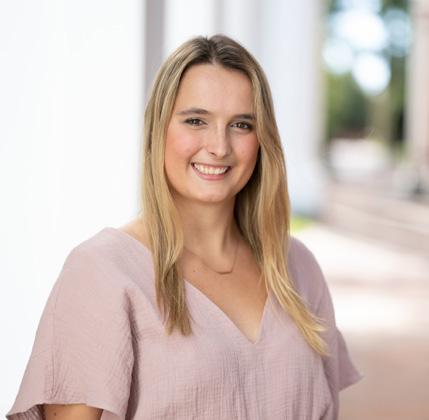
Many W&L students intern through the Shepherd Higher Education Consortium on Poverty (SHECP). Additionally, students support organization in the Lexington area, participate in international internship programs, and propose their own internships in communities all over the United States. n
hospital while eye-opening and inspiring was not the best part about my experience. It was traveling the country with friends from around the world that truly put this experience in context. Specifically, adventuring not only outside of my own country but also adventuring outside of the comfort of the known city streets of Cusco, into the countryside. One particular experience sticks out. For 5 days, we woke up at 4 am, hiked between 16-18 miles, and traveled across terrain between 8,000 feet and 15,000 feet in elevation. We stopped at many local villages, made coffee from beans harvested along the trails, visited Incan ruins and ancient potato farms, and enjoyed amazing Peruvian food. It was pure, raw, and one of the most demanding physical tests I have ever had. But it also opened a window into the beauty of a country, beyond the confines of a hospital and tourist stops. While I hope I was able to make an impact during my short time at the hospital, the country, my host family, my friends, the people I worked with and the patients I worked around gave me a
sense of connectedness. They helped make my work seem so much more important than a volunteer experience. Sure, this internship allowed me to work in a medical setting which is what I was seeking, but it surprised me. It broadened my world view. I made connections to people from around the world who were traveling through Peru. These interactions have now begun to shift my focus away from traditional paths to medicine in the United States and towards opportunities in public health or international nursing. While the 240 clinical hours I acquired definitely help in applying to graduate programs in healthcare, it was the impact Peru and the people of the world made on my life that are going to have the biggest impact on my future. n
My SHECP internship with the Camden Coalition in Camden, New Jersey was hugely impactful and exposed me to more than I knew existed in the realm of public health prior to this summer. They keep their mission rather short and sweet: to improve the well-being of individuals with complex needs. But they have seemingly countless ways by which they endeavor to achieve that lofty goal. Among these many programs is Pledge to Connect, the team I was assigned to for eight exciting weeks. Essentially, we connect patients who go into the ER with low-acuity mental health drivers to outpatient care since

My SHECP internship with the REAL LIFE program was great. I learned so much about myself and others. The program’s mission is to serve individuals who have been impacted by incarceration, homelessness, or substance use disorder by giving them an opportunity to overcome the personal and community barriers that hinder their pathway to a thriving life. As I worked there I had many roles to complete. I assisted program members by creating resumes, helping program
The Diversion Hub is a nonprofit in Oklahoma City that aims to decrease the number of people involved in the criminal justice system. Oklahoma has one of the highest incarceration rates per capita in the U.S. as well as the world. Many people working in the criminal justice system saw that change was needed, and through the help of politicians, voters, and lawyers, the Diversion Hub was founded in June of 2020. The three main parts of this program are justice navigators, case
the ER is not set up to facilitate such connections, and without our followup, they would unfortunately be left exactly where they started after their ER visit. Courses in poverty studies on the various struggles that people may face and discussions on the just allocation of resources in medical ethics class have led to a build-up of textbook knowledge on “what” it might be like to work in an under-resourced community. However, actual experience is what brings out the “why” and “how” of it all. Being a part of the team helping people overcome the odds piled against them and fighting to remove those barriers
on a systemic level inspires me to push through the courses ahead of me and to a career continuing their good work. This internship has exposed the world of public health in a way that no reading ever could. The passion of people in the field and the challenges posed by the work they do is both overwhelming in themselves and overwhelmingly inspiring to me. n
members search and apply for jobs, interviewing members for webpage blogs, researching topics for the module, and creating presentations for career development. My favorite part of the job was conducting interviews with program members. Every single individual had different backgrounds and situations, but they wanted to change and become better versions of themselves. I learned that it is important to treat people with dignity and most importantly to not treat people for the worst thing that they have
done. I know now that I am definitely interested in working to help people. I also learned that I am the type of person that works best with people. I liked being able to connect with the people in the program. Because of this internship, I am more interested in rehabilitation after prison. n
managers, and on-site partners. This experience is important to me because this is one of the most underserved communities in Oklahoma and the country. Coming into this internship, I did not think that I wanted to work in the nonprofit sector, and although I love my time here and am very passionate about this line of work, I think that I would still like to pursue a career in the health profession. Working at the Diversion Hub, we see so many people who walk in with different health
problems, such as bad teeth, people with bad vision, and those who cannot afford their medications. I would love to help the underserved population in some way, whether that is a full-time profession or taking my free time to assist in clinics. n




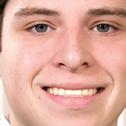



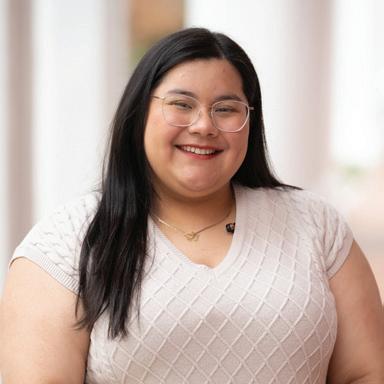
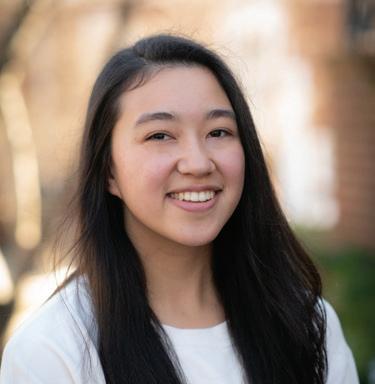
Mohammed Dyaa Albotabeekh Cabbage Patch Settlement House*
Louisville, KY
Kristina Ayers So Others May Eat, Inc.* Washington, DC
Christian Basnight Higher Purpose Co.* Clarksdale, MS
Eric Bazile Austin Chamber of Commerce* Austin, TX
Georgia Bernbaum Holocaust Memorial Resource & Education Center of Florida Maitland, FL
Lawson Brantley Rockbridge Area Relief Association and Blue Ridge Mile Lexington, VA
Lela Casey Campus Kitchen at Washington and Lee
Lexington, VA
Cydney Clark Defender Association of Philadelphia Philadelphia, PA
Mason Davis United Planet, Health Clinic Peru
Kate Dewing Project Horizon Lexington, VA
Allie Doyle Austin Chamber of Commerce* Austin, TX
Jillian Gallardo Community Foundation of Ireland Ireland
Natalie Gresham Food As Medicine, Grady Health Foundation* Atlanta, GA
Drew Harrell Richmond Public Defender's Office* Richmond, VA
Kelly Hayes Campus Kitchen at Washington and Lee Lexington, VA
Lauren Hollis Camden Coalition of Healthcare Providers* Camden, NJ
Jana Hulsey Office of the Public Defender Brunswick Judicial Circuit* Brunswick, GA
Maggie Johnston Academic Programs International API Spain
Colleen Karlovich Blue Ridge Legal Services Lexington, VA
Avani Kashyap Camden Coalition of Healthcare Providers* Camden , NJ
Brynn Martinson Matthews Free Medical Clinic Matthews, NC
Elisabeth Matthews Brightside Child & Family Advocacy*
Savannah, GA
Barbara Merryman Law Office of the Shelby County Public Defender Memphis, TN
Elise Molinaro Forsyth Farmers Market*
Andrew Morse Rockbridge Area YMCA
Savannah, GA
Lexington, VA
Tanajia Moye-Green Chainless Change Sunrise, FL
Jessica Pachuca YWCA Greater Austin* Austin, TX
Jordynn Palethorpe Rockbridge Area Relief Association
Jackson Parker Rockbridge Area Relief Association
Lexington, VA
Lexington, VA
Cameron Perales Federal Public Defender- Eastern District of Virginia VA
Derek Qu Rockbridge Area Transportation Services and Rockbridge Area YMCA
Lexington, VA
Amanda Romano Susquehanna Legal Aid and Education for Adults and Youths* Shamokin, PA
Ryan Schwartz Inasmuch Foundation Community Fellowship
Kamron Spivey Habitat for Humanity
Oklahoma City, OK
Lexington, VA
Kiera Stankewich New Roots, Inc.* Louisville, KY
Gretta Syrett Tharros Place*
Savannah, GA
Julia Thomson Bowery Residence Center* New York, NY
Jalen Todd Life Pieces to Masterpieces*
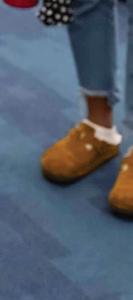
Shannon Tozier Park Place Outreach*
Liv Ullman Good Samaritan Health Center*
Allyssa Utecht Deep Well Project
Jeniffer Ventura Real Life Program*
Michael Wang
Ava Wilkes
Kierstyn Wise
Campus Kitchen at Washington and Lee
Campus Kitchen at Washington and Lee
Boxerwood Education Association
Sofia Zarazua New American Pathways*
*Indicates SHECP Internship
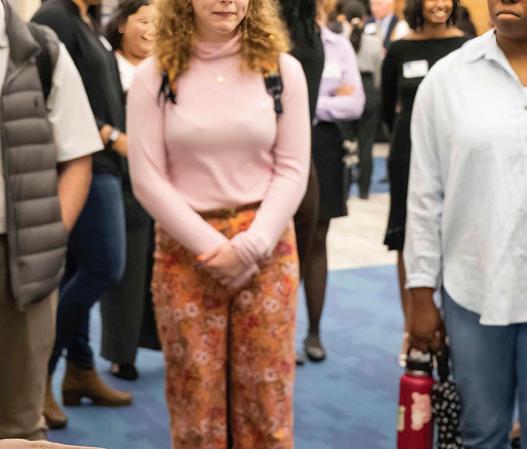
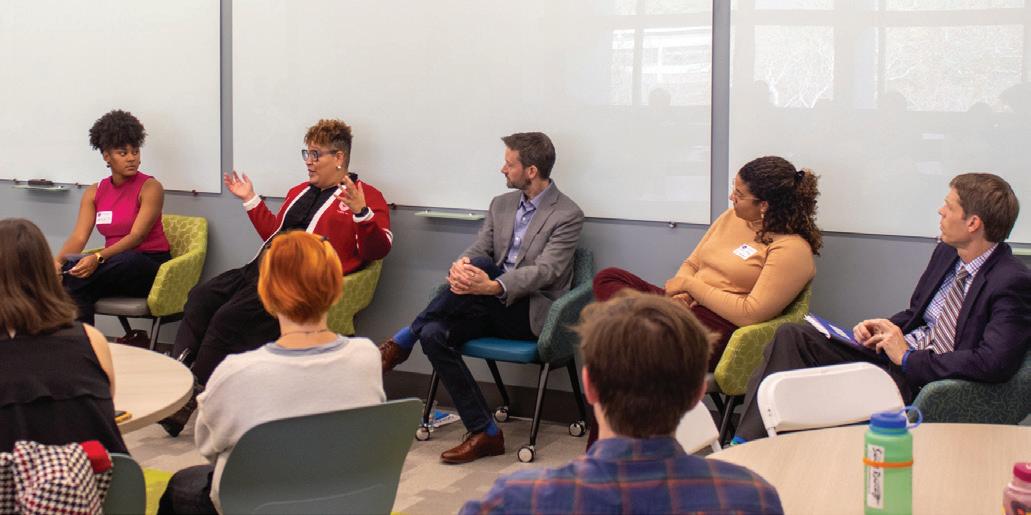

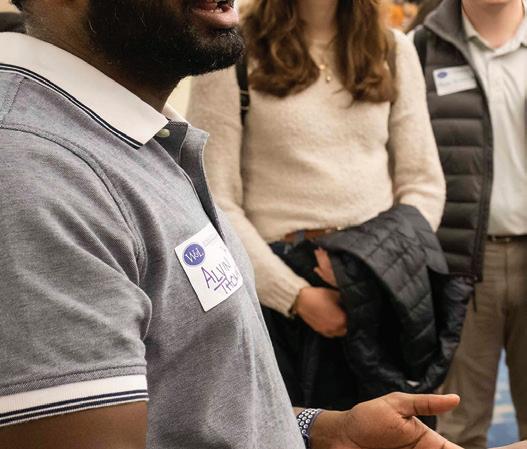
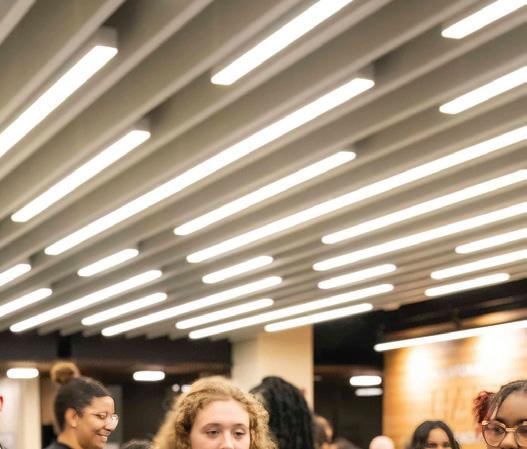
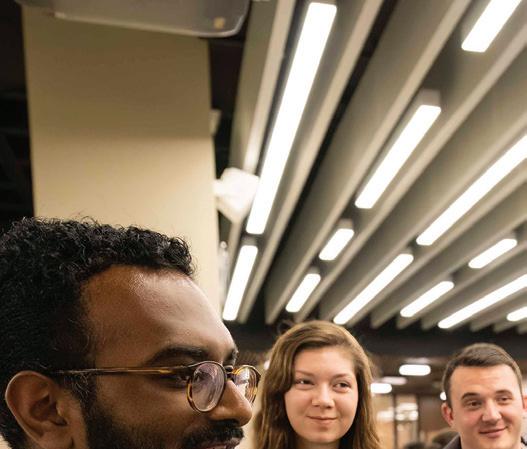
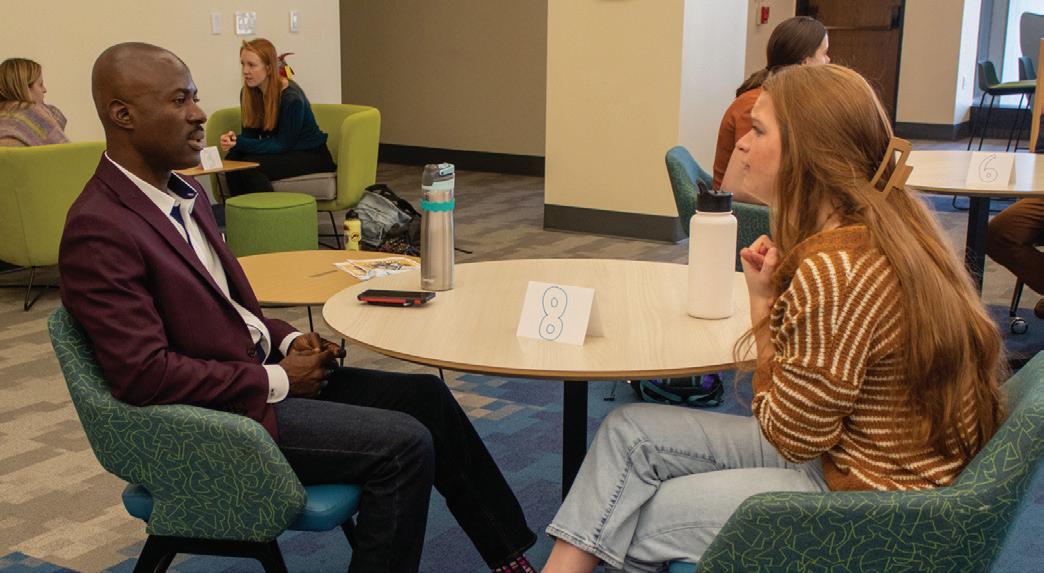
Washington, DC
Savannah, GA
Atlanta, GA
Hilton Head Island, SC
Richmond, VA
Lexington, VA
Lexington, VA
Lexington, VA
Atlanta, GA
The Social Impact Careers Summit, held in November, featured four alumni panels: Medicine and the Social Determinants of Health; From Humanities Major to Social Impact Career; Environment, Law, and Public Policy; and Designing for Access and Equity. The summit also featured opportunities for personal connection between students and alumni. n
Shepherd is—and always has been— special because of the people involved! The connections and community here are invaluable to what we do and why we do it. In the Shepherd Alumni Mentor Program, our goal is to make and maintain meaningful connections that provide encouragement, advice, opportunities, and enjoyment, especially during life’s transitions from college to career, from one career to another, and beyond. The program creates a supportive community of alumni and community partners with a shared interest in living out the Shepherd mission through their professional and civic lives. n
Emmanuel Abebrese '15
Duke Cancelmo '80
Kate Corr '09
Bethlehem Dammlash '06
Leah Gose '15
Mason Grist '18
Anjelica Hendricks '15L
Tran Kim-Senior '05
Lacy McAlister King '14
Melissa Caron Medeiros '09
Sejal Mistry '17
John Nolan '70
Maisie Osteen '14L
Alex Prather '14
Jo Simeu '20
Sonia Siu '07
Stacy McLoughlin Taylor '02
Chris Washnock ‘12
Morten Wendelbo '12
Jonathan Wortham '04
Shiri Yadlin '12
Maggie Johnston
Katherine Ho
Grace Donahue
Ashley True
Megan Kanaby
Ashlyn Doane
Tanajia Moye-Green
Alexxis Hatfield
Mary Katherine Murphy
Blake Sanchez
Allie Stankewich
Kit Lombard, Matthew Todd
Ty del Casal
Jensen Rocha
Jillian Gallardo
Caitlin Barnes
Kamryn Godsey
Emily Brookfield
Elisabeth Matthews, Ellie Penner
Diana Rodriguez
Hannah Puckett
The Shepherd Program hosted a commencement breakfast to celebrate our program’s 2023 graduates. Five Shepherd graduates and a young alumna were awarded the Fulbright Awards: Finn Connor ’23 (Germany), Maggie Hawley ’23 (Spain), Kamryn Godsey ’23 (Taiwan), Allie Stankewich ’23 (Uganda), Tanajia Moye-Green ’23 (United Kingdom), and Annie Talton ’21 (Hungary). n
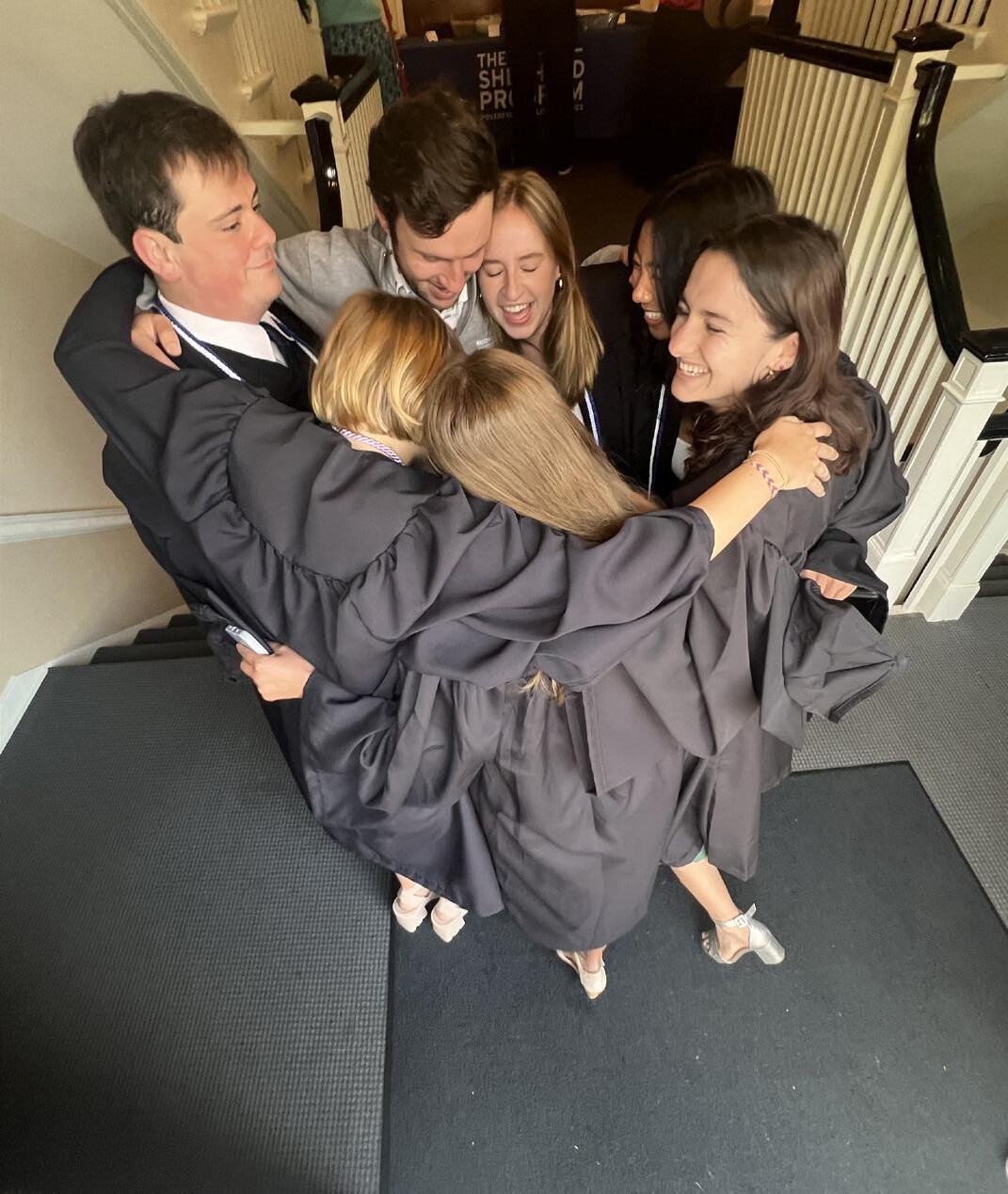
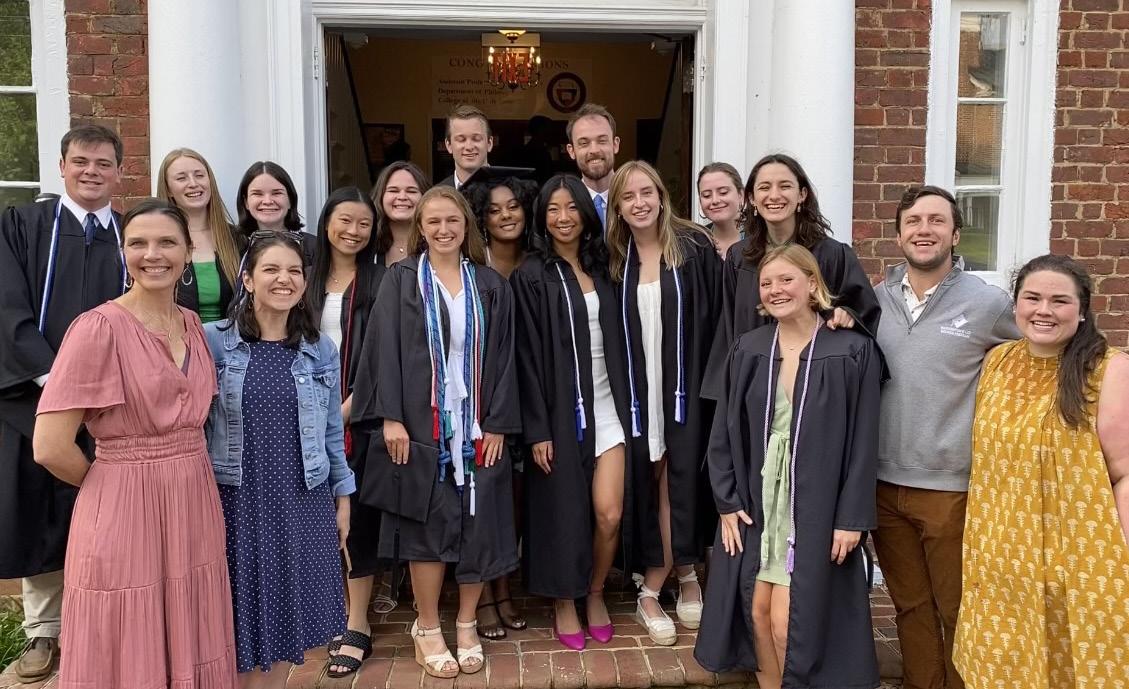

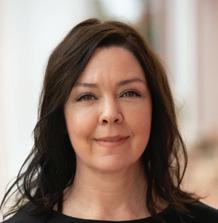
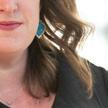

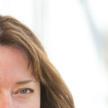

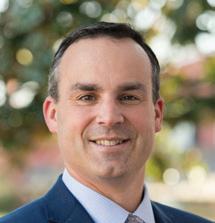
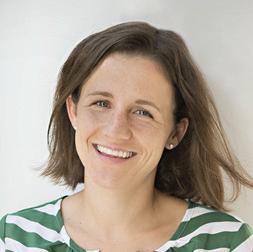
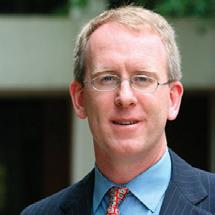
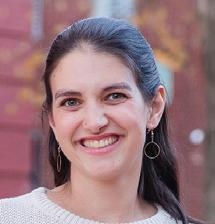
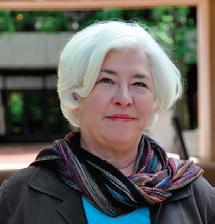
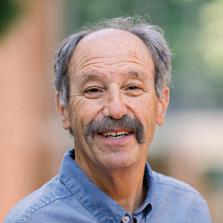


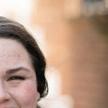
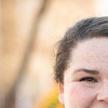
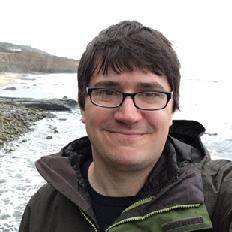
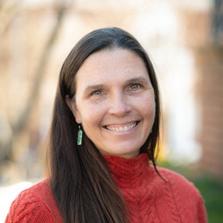
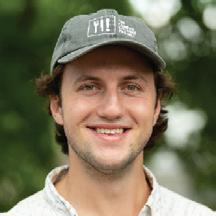
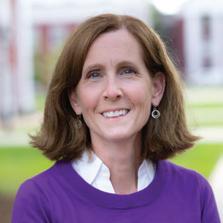

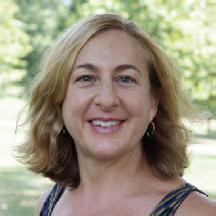

Emmanuel Abebrese ‘15
Green Bay, WI
Charles Allen ‘99
Washington, D.C.
Cynthia Cheatham ‘07
Washington, D.C.
Bethlehem Dammlash ‘06
Washington, D.C.
George Foote ‘71
Alexandria, VA
Leah Gose ‘15
Cambridge, MA
Mason Grist ‘18
Austin, TX
Anjelica Hendricks ‘15L Philadelphia, PA
Norman Kim-Senior ‘05
Alexandria, VA
Tran Kim-Senior ‘05
Alexandria, VA
Melissa Medeiros ‘09
Washington, DC
Elizabeth Mugo ‘19 Washington, D.C.
Jamila Seaton ‘09 Green Bay, WI
Kerriann Shabanowitz ‘13 ‘16L Burke, VA
Sonia Siu ‘07, Chair Boston, MA
Alvin Thomas ‘14
St. Louis, MO
Christopher Washnock ‘12 New York, NY
Morten Wendelbo ‘12 Denmark
Jonathan Wortham ‘04, Immediate Past Chair
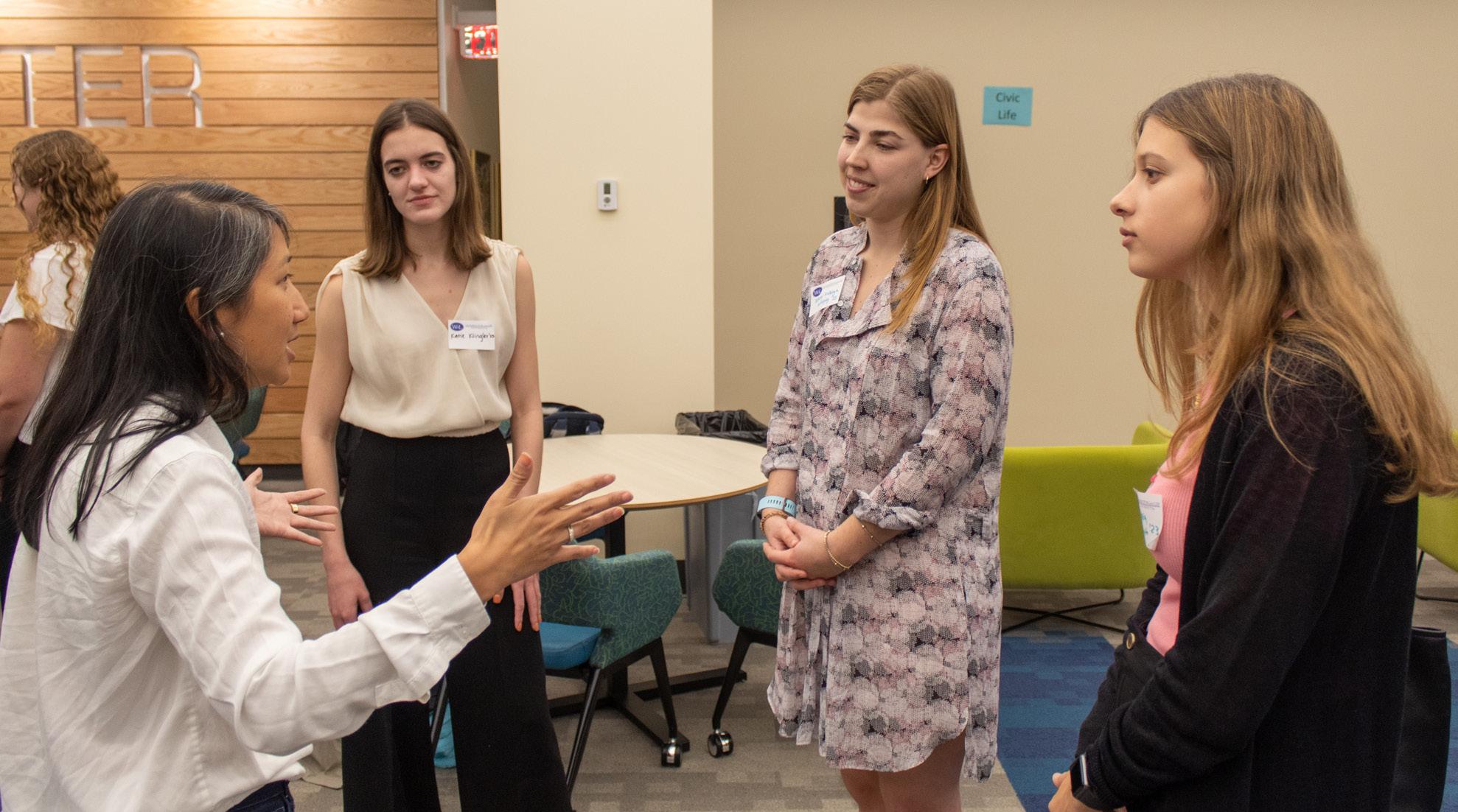
Atlanta, GA
Shiri Yadlin ‘12 Washington, D.C.
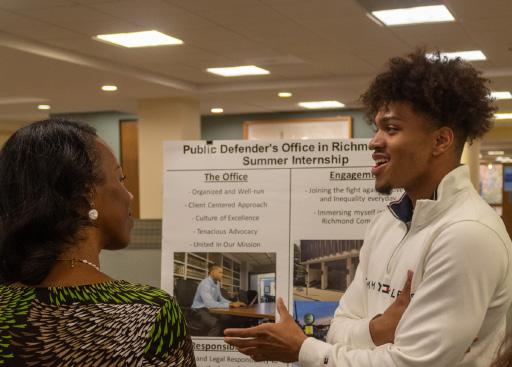

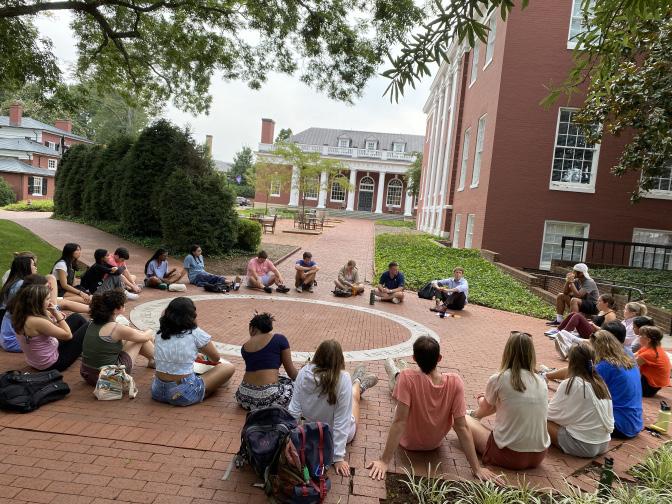
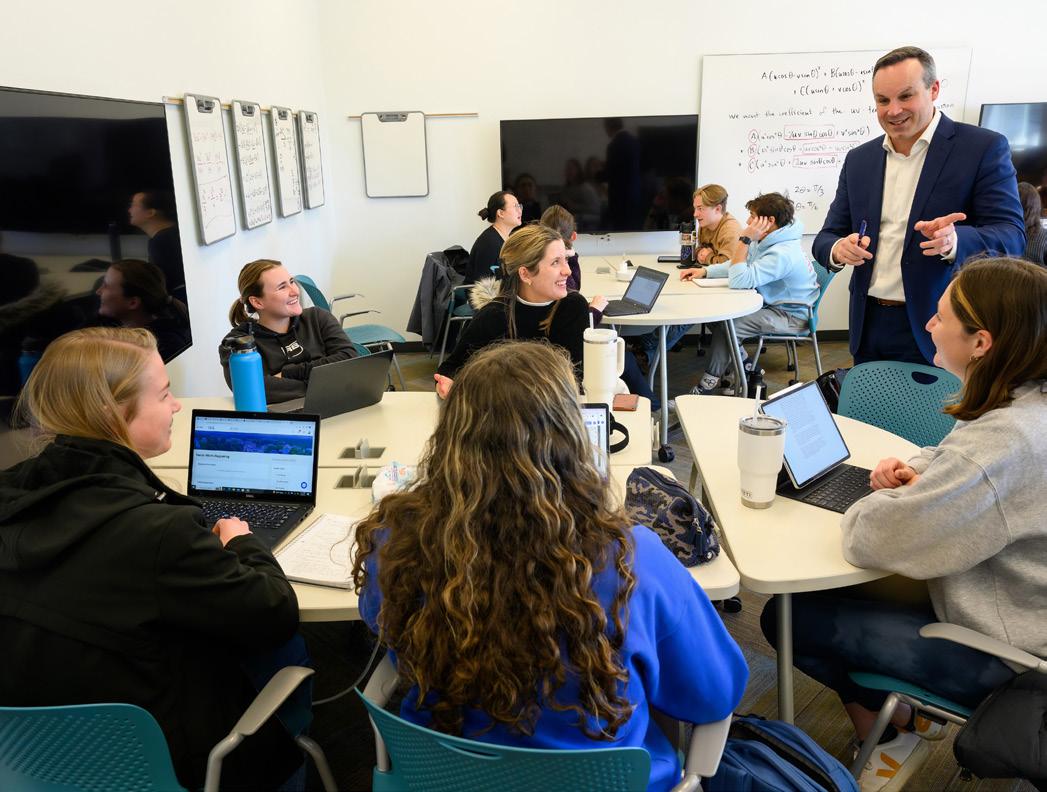
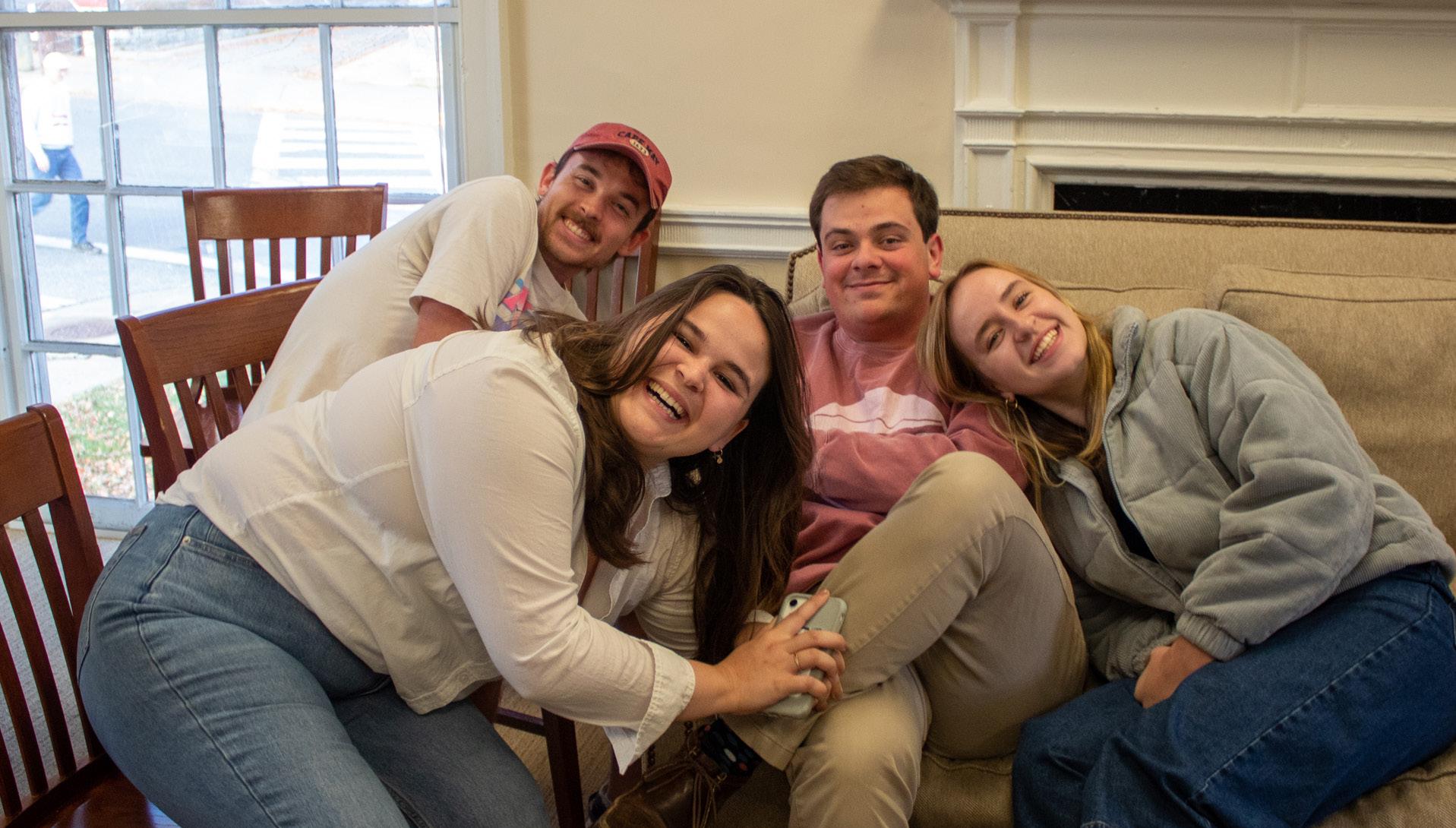
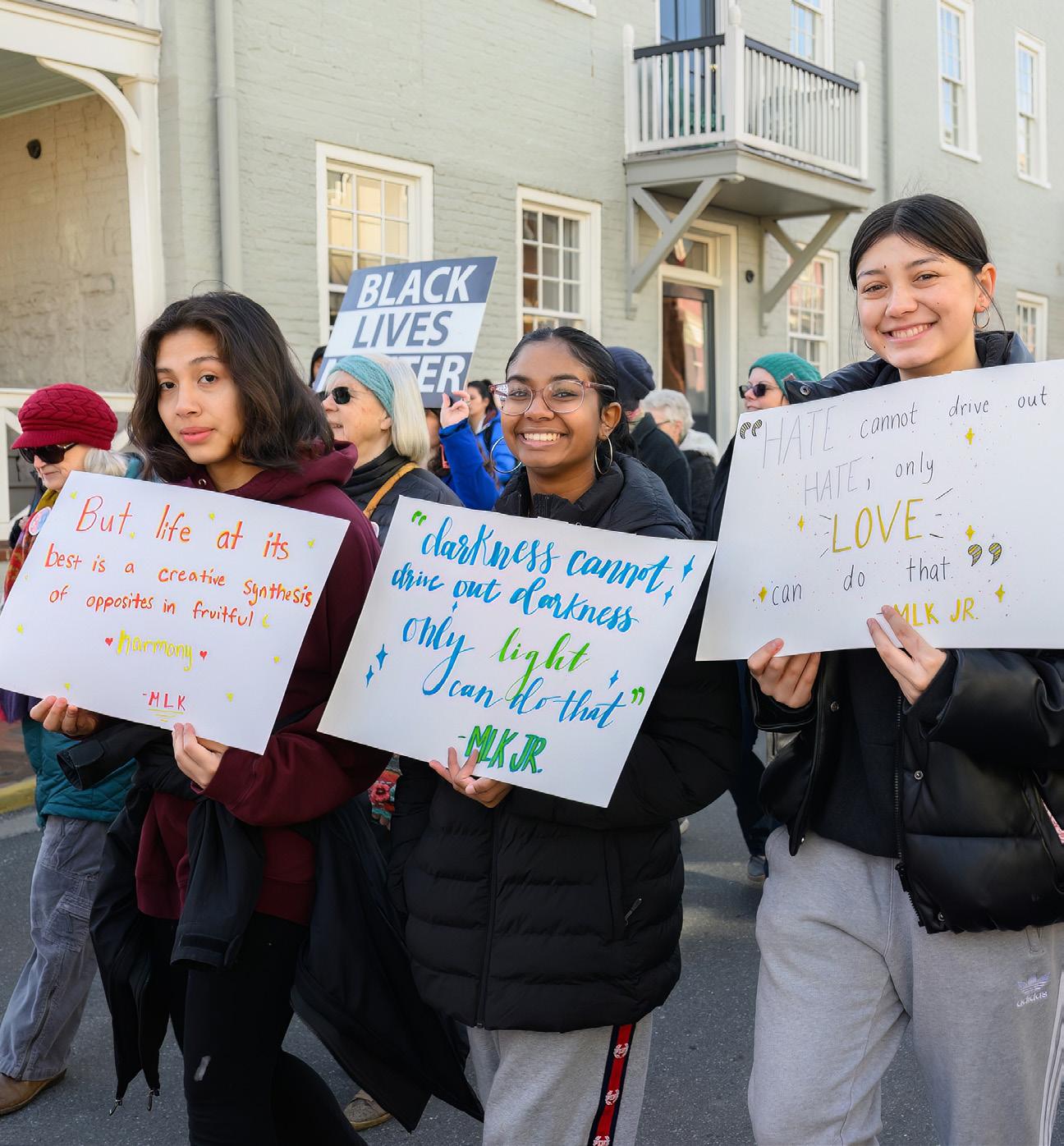 Students and alumni sang and ate cake to celebrate 25 years of the Shepherd Program during the Social Impact Careers Summit reception.
Drew Harrell ’24 presents learning from his Shepherd Internship at the Richmond Public Defender’s Office.
Shepherd students Jess Pacchua ’25, Alina de Zoysa ’25, and P Barnes ’25 march in the local MLK Day parade.
The Mattingly Living Room is a second home for seniors Emily Brookfield, Ben Hess, J.C. Ward and Hannah Puckett.
Professor Tim Diette teaches POV 101 students.
Volunteer Venture student leaders reflect with Professor Howard Pickett on the goals of the program.
Students and alumni sang and ate cake to celebrate 25 years of the Shepherd Program during the Social Impact Careers Summit reception.
Drew Harrell ’24 presents learning from his Shepherd Internship at the Richmond Public Defender’s Office.
Shepherd students Jess Pacchua ’25, Alina de Zoysa ’25, and P Barnes ’25 march in the local MLK Day parade.
The Mattingly Living Room is a second home for seniors Emily Brookfield, Ben Hess, J.C. Ward and Hannah Puckett.
Professor Tim Diette teaches POV 101 students.
Volunteer Venture student leaders reflect with Professor Howard Pickett on the goals of the program.